Peace in the MENA Remains a Tall Order (Key Points)
Dr. ABD ALQADER NANAA • ٤ أغسطس ٢٠٢٢
The Arab opposition squandered a crucial opportunity to transition their countries towards democracy over the past decade. They were characterized by corruption, failure, authoritarianism, a lack of political programs, and an inability to present themselves as a convincing alternative to the populace or international supporters.
Concurrently, the Syrian crisis has emerged as the most severe crisis in the MENA region, with foreign-armed forces clashing, various armed non-state actors operating, and Syria enduring one of the world's most dire humanitarian crises.
Achieving peace in the MENA region necessitates initiating peace in Syria. The international community, along with international law scholars and human rights advocates, has diligently worked to establish laws prohibiting governments from using violence against their citizens and permitting international intervention to protect civilians. The Responsibility to Protect (R2P) doctrine was established specifically for this purpose, legitimizing international intervention to safeguard civilians.
However, the Syrian case has demonstrated the ineffectiveness of enforcing this rule over the last decade. This scenario calls for both practical and theoretical evaluations, as the Syrian situation still demands an immediate and lasting international solution.
The events in Syria have the potential to be replicated in numerous Arab countries, leading to a proliferation of failed states in the MENA region. Failed states such as Syria, Iraq, Libya, Somalia, Lebanon, and Yemen pave the way for increased foreign intervention and the proliferation of non-state actors, thereby threatening the future stability of the MENA region. Theoretical models suggest that the impacts of state failure extend up to a radius of 800 km and persist for more than 50 years.
The Global Peace Index 2022 edition confirms that the problem encompasses the Arab Peninsula, Egypt, and the MENA region as a whole. Many of these failed states (marked in red) are likely to remain in their current condition for decades, thereby exporting their problems to neighboring countries or inviting external powers to intervene. Addressing this issue is a top priority for Egypt, Saudi Arabia, and the UAE to secure their future.
To achieve any semblance of peace in the Middle East, Iran must first be expelled from the region. True peace cannot be envisioned otherwise. This mission falls upon Saudi Arabia, the United Arab Emirates, and Egypt. Other regional powers, preoccupied with their own agendas and interests with Iran, have shown little concern.
With the decline of Arab influence in the MENA region in favor of Iran (primarily) and Turkey, the lebensraum (Syria, Iraq, Lebanon, Yemen, and Libya) has become a battleground of failed states, rife with danger and occupied by regional powers. This lebensraum has now become the target of other powers, which are attempting to expand their influence into additional Arab territories, such as Iran's ambitions towards Jordan.
While Saudi Arabia and Egypt are geographically closer to these failed states, the UAE remains a safe haven, distant from the region's turmoil. The UAE has significant opportunities, positioning itself as the most active Arab actor in the short term. However, it must elevate its political methods and tools to a regional level. This can be achieved by leveraging the continuous strategic vacuum in the region.
Arab countries now have limited options. The most crucial is to resume their original roles as soon as possible.
Meanwhile, eliminating the first generation of al-Qaeda leadership is an effective method to weaken its structure. However, this alone is insufficient. Al-Qaeda can easily appoint new leaders. The organization thrives on an appealing ideology, which, due to structural factors, finds its primary audience in the vast MENA region and Africa.
If global powers are serious about counterterrorism, they must address the underlying factors: tyranny, injustice, state failure, hopelessness, and ignorance of foreign interventions. These factors have created an environment conducive to populist rhetoric, which has evolved into various forms of extremism, including al-Qaeda. If these factors persist, a new wave of terrorism can be expected.
To achieve long-term peace in the MENA region, it is essential to contain the destructive forces, which include:
- Regimes that have failed criminally.
- Foreign intervening (occupying) powers.
- Ineffective oppositions.
- Cross-border militias.
- Terrorism.
- Populist parties.
The region is predominantly under threat, providing an ideal environment for extremism, alongside a sharp decline in resources, opportunities, and environmental conditions.
Finally, the MENA region requires a "risk index" based on regional priorities to predict the impacts of:
- Global warming.
- Terrorism.
- Popular movements.
- Foreign interventions.
- Non-state actors.
- Economic trends.
- Ethnic and sectarian disruptions.
- Food and energy deficiencies.
- Inter-state conflicts.
Dr. ABD ALQADER NANAA

جون هيغلي (جامعة تكساس/هيوستن)، وميشيل بورتون (كلية لويولا/ميرلاند) ترجمة: عبد القادر نعناع (جامعة الشام العالمية/حلب) ملخص البحث تعتمد النظم الديمقراطية المستقرة اعتمادًا كبيرًا على ما يُسمّى بـ "الوحدة التوافقية" للنخب الوطنية. فطالما ظلت النخب منقسمة، تبقى النظم السياسية غير مستقرة، وهي حالة تجعل من التحولات الديمقراطية والانهيارات الديمقراطية مجرد تذبذبات مؤقتة في الأشكال التي تتخذها النظم غير المستقرة. ويبدو أن الانقسام هو الحالة العامة السائدة بين النخب الوطنية، كما يميل هذا الانقسام بقوة إلى الاستمرار بغضّ النظر عن التطور الاجتماعي-الاقتصادي أو غيره من التغيرات التي تطرأ على جماهير السكان. أما النخب المتوافقة والمتحدة، الضرورية لقيام ديمقراطيات مستقرة، فلا تتشكل إلا بطرق محدودة، من أهمها طريقتان تنطويان على تحولات نخبويّة مميّزة. بعد توضيح هذا الطرح، سنفحص العلاقة بين النخب والأنظمة السياسية في دول الغرب منذ بدء عملية تماسكها بعد عام 1500. ونُبيّن أن مقاربتنا تقدّم تفسيرًا منطقيًا ومتماسكًا للسجل السياسي الغربي، وتسهم بدرجة كبيرة في توضيح آفاق قيام ديمقراطيات مستقرة في المجتمعات النامية اليوم، كما تجعل التحليل متزايد التركيز على النخب في دراسة التحولات والانهيارات الديمقراطية أكثر منهجية وانتظامًا. للعودة إلى النص الأصلي: John Higley and Michael G. Burton, “The Elite Variable in Democratic Transitions and Breakdowns,” American Sociological Review, Vol. 54, No. 1 (February 1989), pp. 17–32. لتنزيل الدراسة

مصطفى العلي ود. عبد القادر نعناع تشكل هذه الدراسة المحكمة بحثاً أكاديمياً قدمه مصطفى العلي تحت إشراف د. عبد القادر نعناع، لاستكمال متطلبات مناقشة رسالة الماجستير. وقد نشر هذا البحث في مجلة جامعة الزيتونة الدولية في عددها 42، المجلد الثاني، بتاريخ كانون الثاني/يناير 2026. شهدت الحروب في التاريخ المعاصر تحوّلاً نوعيّاً في طبيعتها وأدواتها، حيث تراجعت أنماط المواجهة التقليديّة المباشرة بين الجيوش النظاميّة لصالح أنماط غير تقليديّة من الصراعات، وعلى رأسها الحروب بالوكالة. وقد ارتبط هذا التحول بارتفاع الكلفة المادية والبشرية للحروب التقليديّة، وبالقيود القانونيّة والسياسيّة التي تحدّ من قدرة الدول على الانخراط المباشر في النزاعات، مما دفع العديد من الفاعلين الدوليين إلى البحث عن أدوات بديلة لتحقيق أهدافهم الاستراتيجيّة. في هذا الإطار، برزت الحرب بالوكالة كآلية فعّالة لإدارة النزاعات دون تحمّل تبعات التدخّل المباشر. فهي تمنح القوى الإقليميّة والدوليّة قدرة على التأثير في مسارات النزاعات الداخليّة من خلال وكلاء محليين كالميليشيات، ما يتيح تحقيق المكاسب بأقل الخسائر الممكنة. كما تسهم هذه الحروب في إعادة تشكيل توازنات القوى على المستويين الإقليمي والدولي، إذ يتحول النزاع المحلي إلى ساحة لتقاطع المصالح بين أطراف متعددة، وتصبح إدارة الوكلاء أداة لإعادة توزيع النفوذ بين القوى الكبرى. وتُعدّ إيران نموذجاً بارزاً في توظيف الحرب بالوكالة كأداة لإعادة صياغة توازن القوى الإقليمي. فمنذ ثمانينيات القرن العشرين، تبنّت طهران استراتيجية تقوم على بناء شبكة من الوكلاء العقائديين والمسلّحين في مناطق عدّة من الشرق الأوسط، بهدف توسيع مجالها الحيوي وتعزيز نفوذها خارج حدودها. وقد تجسّد هذا النهج بأوضح صوره في الحرب السورية منذ عام 2011، حيث رأت إيران في بقاء نظام الأسد ضرورة لحماية مصالحها الإقليمية، فدعمت النظام سياسياً واقتصادياً وعسكرياً عبر وكلائها، وفي مقدمتهم حزب الله والميليشيات الشيعية العراقية والأفغانية والباكستانية. وبذلك، تحوّلت الساحة السورية إلى ميدان مركزي لإعادة ضبط توازن القوى عبر الوكلاء، بحيث أصبحت إيران فاعلاً حاسماً في توجيه مسار الصراع الإقليمي، مستخدمة أدوات غير مباشرة لإدامة نفوذها وتثبيت حضورها الاستراتيجي. للاطلاع على البحث، على الرابط التالي
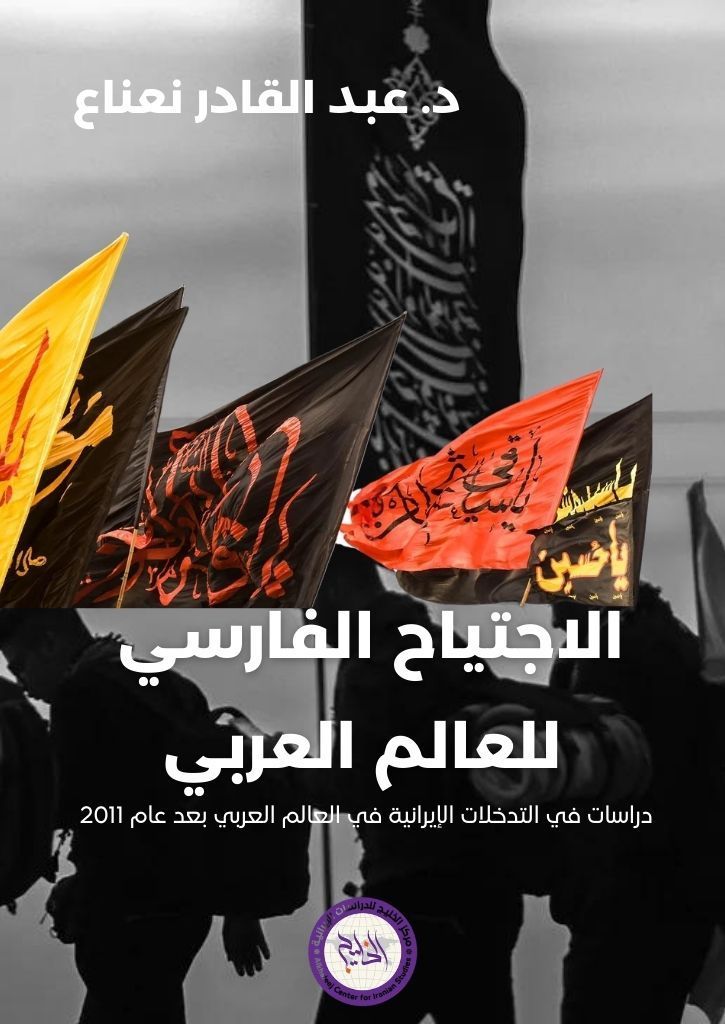
مراجعة/ نور عباس يمثل كتاب "الاجتياح الفارسي للعالم العربي: دراسات في التدخلات الإيرانية في العالم العربي بعد عام 2011" للدكتور عبد القادر نعناع محاولة جادة لفهم التحولات العميقة التي شهدتها المنطقة العربية في العقد الأخير، من زاوية الدور الإيراني المتنامي، إذ لا يقتصر الكتاب على توصيف التدخلات الإيرانية في الدول العربية، بل يسعى إلى تحليل محددات السياسة الخارجية الإيرانية، ورصد أدواتها، وقراءة انعكاساتها على الأمن القومي العربي وعلى التوازنات الإقليمية والدولية. تأتي أهمية هذا العمل من كونه يتناول مرحلة مفصلية في التاريخ العربي الحديث، حيث تزامن اندلاع الثورات العربية مع صعود المشروع الإيراني إلى ذروة نفوذه، مستفيدًا من انهيار بعض الدول، ومن هشاشة أخرى، ومن فراغ استراتيجي تركته القوى الدولية. بهذا المعنى، يشكّل الكتاب مرجعًا لفهم كيف تحوّلت إيران من لاعب إقليمي محدود التأثير إلى قوة قادرة على إعادة تشكيل خرائط النفوذ في المشرق والخليج واليمن، بل ومحاولة مدّ نفوذها إلى شمال أفريقيا. محددات السياسة الخارجية الإيرانية يبدأ المؤلف بتفكيك البنية النظرية التي تحكم السياسة الخارجية الإيرانية، موضحًا أن هذه السياسة ليست مجرد رد فعل على الأحداث، بل هي مشروع استراتيجي طويل الأمد يقوم على مزيج من الأيديولوجيا والمصلحة. فالعوامل الداخلية، مثل طبيعة النظام السياسي القائم على ولاية الفقيه، ودور الحرس الثوري كفاعل عسكري واقتصادي، والاعتبارات الاقتصادية والاجتماعية، كلها تشكّل قاعدة صلبة لصناعة القرار. أما العوامل الخارجية فتتمثل في البيئة الإقليمية والدولية، حيث تنظر إيران إلى العراق وسوريا ولبنان واليمن باعتبارها امتدادًا طبيعيًا لمجالها الحيوي، وتسعى إلى موازنة نفوذ الولايات المتحدة وحلفائها في المنطقة. كما يولي المؤلف اهتمامًا خاصًا للمحددات الدينية والمذهبية التي توظفها إيران كأداة نفوذ، وللمحددات التاريخية والجغرافية التي تجعل من الخليج العربي والعراق وسوريا ساحات مركزية في استراتيجيتها. التدخلات الإيرانية في الساحات العربية ينتقل الكتاب بعد ذلك إلى دراسة معمقة لكل ساحة عربية على حدة، محللًا طبيعة التدخل الإيراني فيها. ففي العراق، يوضح كيف تحوّل البلد بعد 2003 إلى ساحة نفوذ إيراني مباشر، عبر الميليشيات والأحزاب السياسية والاقتصاد، وصولًا إلى مرحلة ما بعد "داعش" حيث عززت إيران حضورها العسكري والسياسي. أما في سوريا، فيخصص المؤلف فصلين لتطور السياسة الإيرانية قبل 2011 وبعد اندلاع الثورة. يبين كيف تحوّل التدخل من دعم سياسي للنظام إلى تدخل عسكري مباشر عبر الحرس الثوري و"حزب الله"، وكيف أصبح الوجود الإيراني عنصرًا حاسمًا في بقاء النظام السوري. في لبنان، يبرز الكتاب دور "حزب الله" كأداة مركزية للنفوذ الإيراني، وكيف أصبح لبنان قاعدة متقدمة للمشروع الإيراني في المشرق، ليس فقط عسكريًا بل أيضًا سياسيًا واجتماعيًا. وفي اليمن، يناقش صعود الحوثيين والدعم الإيراني لهم، وتحول اليمن إلى ساحة صراع إقليمي بين إيران والسعودية، بما لذلك من انعكاسات على أمن الخليج والممرات البحرية. كما يتناول الكتاب سياسات إيران تجاه دول الخليج العربي، من البحرين والسعودية والكويت والإمارات وقطر وعُمان، مبرزًا أدواتها الناعمة والخشنة في محاولة اختراق هذه الدول. وفي فلسطين، يوضح كيف وظفت إيران القضية الفلسطينية لتعزيز شرعيتها الإقليمية عبر دعم حركات المقاومة، مقدمة نفسها كحامية للقضية في مواجهة إسرائيل. أما في المغرب العربي، فيعرض محاولات إيران مد نفوذها إلى شمال أفريقيا عبر البعد المذهبي والدبلوماسي، وإن كان ذلك بمدى أضيق مقارنة بالمشرق. البعد الإسرائيلي والدولي يولي الكتاب اهتمامًا خاصًا لتطور الفكر الإسرائيلي تجاه إيران بعد الاتفاق النووي عام 2015 وبعد الثورات العربية. يوضح كيف رأت إسرائيل في إيران تهديدًا استراتيجيًا وجوديًا، وكيف انعكس ذلك على سياساتها الأمنية والعسكرية، وعلى تحالفاتها الإقليمية. كما يناقش التوازنات الدولية، من الموقف الأمريكي الساعي إلى احتواء إيران عبر العقوبات والضغوط، إلى الدور الروسي الذي استفاد من التحالف مع طهران في سوريا لتعزيز نفوذه في الشرق الأوسط. لماذا من الضروري قراءة الكتاب؟ تكتسب قراءة كتاب "الاجتياح الفارسي للعالم العربي: دراسات عن التدخلات الإيرانية في العالم العربي بعد عام 2011" أهمية مضاعفة في السياق السوري الراهن، لأن سوريا تمثل إحدى الساحات المركزية التي تناولها المؤلف بعمق، ولأنها تشكّل النموذج الأوضح لتجسيد الاستراتيجية الإيرانية في المنطقة. أول ما يجعل الكتاب ضروريًا في الحالة السورية هو أنه يقدّم إطارًا تحليليًا لفهم طبيعة التدخل الإيراني في سوريا منذ عام 2011. فلم تكن التجربة السورية مجرد دعم سياسي أو دبلوماسي من طهران للنظام، بل تحوّلت إلى تدخل عسكري مباشر عبر الحرس الثوري و"حزب الله"، وإلى حضور اقتصادي واجتماعي وثقافي متنامٍ. أي تساعد قراءة الكتاب في إدراك أن هذا التدخل لم يكن طارئًا، بل جزءًا من مشروع استراتيجي طويل الأمد يهدف إلى جعل سوريا حلقة أساسية في "محور النفوذ الإيراني" الممتد من طهران إلى بيروت. ثانيًا، لأن الكتاب يربط بين المحددات الداخلية للنظام الإيراني وبين سياساته الخارجية، وهو ما يتيح فهم دوافع طهران في سوريا. فالتدخل لم يكن فقط لحماية حليف سياسي، بل أيضًا لحماية مشروع أيديولوجي قائم على توظيف البعد المذهبي، ولتعزيز موقع إيران في مواجهة الولايات المتحدة وإسرائيل. هذا الربط يساعد السوريين على قراءة ما يجري في بلدهم ضمن سياق أوسع يتجاوز حدود الصراع الداخلي. ثالثًا، لأن الكتاب يضع التدخل الإيراني في سوريا ضمن خريطة التدخلات الإقليمية والدولية، فيوضح كيف تداخل الدور الإيراني مع الدور الروسي، وكيف أثار قلق إسرائيل، وكيف شكّل تحديًا مباشرًا لدول الخليج. هذه القراءة المقارنة تمنح السوريين فهمًا أعمق لموقع بلدهم في قلب صراع إقليمي ودولي معقّد، وتفسر لماذا تحوّلت سوريا إلى ساحة تنافس مفتوح بين قوى متعددة. رابعًا، لأن الكتاب يقدّم بدائل فكرية لفهم المستقبل. فهو يذكّر بأن التدخلات الخارجية، مهما بلغت قوتها، لا يمكن أن تستمر دون بيئة داخلية هشّة تسمح بها. ومن هنا، فإن قراءة الكتاب في سوريا تفتح النقاش حول كيفية إعادة بناء الدولة على أسس جديدة، قادرة على إدارة التنوع المجتمعي، وتحصين البلاد من أن تكون ساحة مفتوحة لمشاريع الآخرين. إن الضرورة الحقيقية لقراءة هذا الكتاب في سوريا تكمن في أنه يوفّر عدسة تحليلية لفهم الحاضر واستشراف المستقبل. فهو يكشف كيف تحوّلت سوريا إلى محور رئيسي في المشروع الإيراني، ويضع هذا التحول في سياق إقليمي ودولي أوسع، ويذكّر بأن أي حل مستقبلي للأزمة السورية لا يمكن أن يتجاهل هذا البعد. بهذا المعنى، يصبح الكتاب ليس مجرد دراسة أكاديمية، بل أداة لفهم الذات السورية في زمن التدخلات، ومفتاحًا للتفكير في كيفية استعادة القرار الوطني وبناء عقد اجتماعي جديد. ختامًا، يقدّم كتاب "الاجتياح الفارسي للعالم العربي" للدكتور عبد القادر نعناع قراءة معمّقة وموثقة لمشروع إقليمي بالغ التعقيد، استطاع أن يفرض نفسه على المشهد العربي منذ عام 2011 بوصفه أحد أبرز محددات الصراع والتحولات في المنطقة. ومن خلال الجمع بين التحليل النظري لمحددات السياسة الخارجية الإيرانية والدراسة التطبيقية لتدخلاتها في مختلف الساحات العربية، يضع المؤلف بين يدي القارئ مرجعًا لا غنى عنه لفهم طبيعة هذا المشروع وأبعاده. تكمن قيمة الكتاب في أنه لا يكتفي بتوصيف الوقائع، بل يسعى إلى تفسيرها وربطها بسياقاتها التاريخية والسياسية والفكرية، الأمر الذي يمنحه بعدًا تحليليًا يتجاوز حدود السرد إلى مستوى الاستشراف. وهو بذلك يفتح أمام الباحثين وصنّاع القرار والمثقفين العرب أفقًا لفهم التحديات التي تواجه المنطقة، ويذكّر بأن مواجهة التدخلات الخارجية لا يمكن أن تنجح من دون معالجة مواطن الضعف الداخلية التي تجعل الدول العربية عرضة للاختراق. في السياق السوري على وجه الخصوص، يكتسب الكتاب أهمية مضاعفة، إذ يقدّم إطارًا لفهم كيف تحوّلت سوريا إلى ساحة مركزية في الاستراتيجية الإيرانية، وكيف تداخل هذا الدور مع حسابات القوى الإقليمية والدولية الأخرى. ومن هنا، فإن قراءة هذا العمل لا تمثل مجرد اطلاع على دراسة أكاديمية، بل هي خطوة ضرورية لفهم الذات السورية والعربية في زمن التحولات الكبرى، وللتفكير في سبل استعادة القرار الوطني وبناء عقد اجتماعي جديد قادر على تحصين الدولة والمجتمع. إن هذا الكتاب، بما يحمله من عمق وجرأة وشمولية، يظلّ علامة فارقة في الدراسات العربية المعاصرة حول إيران ودورها في المنطقة، ومرجعًا لا غنى عنه لكل من يسعى إلى قراءة الحاضر بوعي واستشراف المستقبل ببصيرة. نقلاً عن أوسكار نيوز
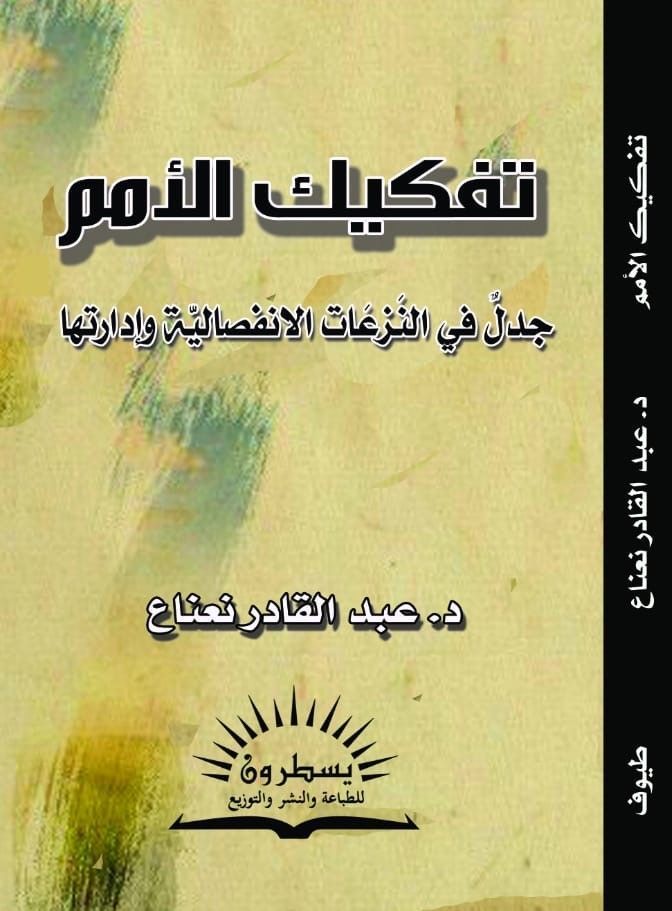
نور عباس يشكّل كتاب "تفكيك الأمم: جدل في النزعات الانفصالية وإدارتها" للدكتور عبد القادر نعناع إسهامًا علميًا رصينًا في حقل الدراسات السياسية والاجتماعية، حيث يقدّم معالجة معمّقة لإحدى أكثر القضايا إلحاحًا في عالم اليوم: مسألة الانفصال والهويات الفرعية في ظل الدولة القومية الحديثة. ينطلق المؤلف من خلفية أكاديمية متينة، إذ يمزج بين التأسيس النظري المستند إلى مدارس الفكر السياسي والاجتماعي الكبرى، وبين التحليل النقدي للواقع العربي الذي يرزح تحت أزمات الهوية والانقسام. لا يكتفي الكتاب بوصف الظاهرة، بل يسعى إلى تفكيك بنيتها الداخلية، وإبراز العوامل التي تغذيها، سواء كانت داخلية مرتبطة بالوعي الجمعي والنخب واللغة والجغرافيا، أم خارجية مرتبطة بالاحتلال والعولمة والتدخلات الدولية. ومن خلال هذا التشريح، يضع المؤلف القارئ أمام صورة مركبة، حيث الانفصال ليس مجرد خيار سياسي، بل هو نتاج تفاعل طويل بين التاريخ والهوية والسلطة. الإطار النظري وبنية المفاهيم يؤسس المؤلف عمله على مراجعة دقيقة للنظريات التي تناولت نشوء القوميات والهويات، إذ تفسر النظرية الماركسية القومية على أنّها انعكاس للبنية الاقتصادية وصراع الطبقات، بينما تنظر الليبرالية إلى القومية بوصفها نتاج الحرية الفردية وبناء الدولة الحديثة. أما نظريات العلاقات الدولية فتتعامل مع القومية بوصفها أداة في التوازنات والصراعات بين الدول. ويضيف المؤلف إلى ذلك المقاربة الإثنية الرمزية التي تركز على اللغة والرموز والذاكرة الجمعية، ونظرية التعددية الثقافية التي تطرح إمكانية إدارة التنوع داخل الدولة الواحدة عبر الاعتراف والتمثيل. من خلال هذا العرض، يوضح المؤلف أن القومية ليست حقيقة ثابتة، بل بناء اجتماعي وسياسي يتشكل عبر التاريخ. ومن هنا، يقدّم تعريفًا دقيقًا للنزعة الانفصالية باعتبارها حركة سياسية ومجتمعية ذات طبيعة إثنية، تقودها نخب داخل دولة قومية، لإعادة تعريف الذات في مواجهة الآخر، والسعي إلى إنشاء دولة – أمة مستقلة، باستخدام أدوات سياسية واقتصادية وعسكرية وثقافية، فيضع هذا التعريف الانفصال في سياقه الصحيح: ليس مجرد مطلب حقوقي، بل مشروع سياسي معقّد يتجاوز حدود الدولة إلى النظام الدولي. التجارب العالمية والأزمة العربية يستعرض الكتاب تجارب عالمية متباينة في التعامل مع النزعات الانفصالية، إذ أدى انهيار الاتحاد السوفيتي في أوروبا الشرقية إلى بروز كيانات جديدة، بعضها جاء عبر تقسيم سلمي كما في تشيكوسلوفاكيا، وبعضها عبر حروب أهلية دامية كما في يوغسلافيا. وفي أفريقيا، لعبت العوامل الاستعمارية والموارد الطبيعية دورًا محوريًا في إذكاء النزاعات الإثنية، كما في السودان وإثيوبيا وسيراليون. أما أوكرانيا فتمثل نموذجًا حديثًا لانقسام الهوية بين الشرق والغرب، وتدخل الفاعلين الدوليين في إعادة رسم الحدود. غير أن التجربة العربية تحمل خصوصيتها، فقد نشأت الدولة العربية الحديثة بحدود استعمارية، ما جعلها تحمل أزمتين متداخلتين: تقسيم الأمة العربية إلى كيانات صغيرة، وإدماج جماعات إثنية داخل حدود لم تُصمَّم لاحتوائها، وقد أنتج هذا نزاعات أهلية في لبنان والسودان واليمن والصومال، ومطالب انفصالية في جنوب السودان وكردستان العراق والصحراء الغربية. ومع اندلاع الثورات العربية عام 2011، عادت هذه الإشكاليات إلى الواجهة، حيث رأت الأقليات في الحراك الشعبي فرصة سياسية لتجديد مطالبها، سواء عبر الاحتجاج السلمي أم عبر العنف المسلح. ينتقد المؤلف الخطابات العربية التي تعاملت مع هذه الإشكاليات، فقد ظل الخطاب الإسلامي يتأرجح بين الشورى والديمقراطية، دون أن يقدّم صيغة واضحة لإدارة التنوع. أما الخطاب العلماني فطرح الدولة المدنية لكنه تجاهل البعد الإثني. وركز الخطاب القومي العربي على الوحدة لكنه فشل في إدارة التعدد الداخلي. أما الخطابات الأقلوية فسعت إلى تثبيت خصوصياتها لكنها اصطدمت بالسلطة المركزية. النتيجة أن جميع هذه الخطابات أسهمت في تفكيك الدولة بدلًا من ترسيخها، لأنها لم تقدّم نموذجًا ديمقراطيًا تشاركيًا قادرًا على إدارة التنوع. نحو إدارة ديمقراطية للتنوع في الفصول الأخيرة، ينتقل المؤلف من التشخيص إلى البحث عن حلول. وهنا، يطرح مجموعة من الآليات التي يمكن أن تسهم في إدارة التعددية الثقافية والإثنية بعيدًا عن خيار الانفصال. أول هذه الآليات هو الديمقراطية، التي يراها المؤلف شرطًا أساسيًا لإدارة التنوع. وهو يميز بين الديمقراطية التوافقية التي تقوم على إشراك جميع المكونات في السلطة، والديمقراطية التنافسية التي تقوم على تداول السلطة عبر الانتخابات، والانتقال الديمقراطي الذي يتيح للمجتمعات الانتقال من السلطوية إلى المشاركة. كما يناقش جدلية الحريات الفردية والجماعية، باعتبارها إحدى أهم التحديات في المجتمعات المتعددة. الآلية الثانية هي العدالة، التي يراها المؤلف حجر الزاوية في أي عقد اجتماعي جديد. فالعدالة الإثنية تقتضي الاعتراف بحقوق الجماعات المختلفة، والمساواة قد تحتاج أحيانًا إلى تفضيل إيجابي لتعويض الفوارق التاريخية. كما أن المشاركة السياسية والعدالة الانتقالية تشكلان أدوات أساسية لإعادة بناء الثقة بين الدولة والمجتمع. أما الآلية الثالثة فهي الحكم اللامركزي، الذي يتيح للجماعات إدارة شؤونها المحلية ضمن إطار الدولة. يناقش المؤلف الفيدرالية والحكم الذاتي، ويعرض مزايا وعيوب الفيدرالية، ويستحضر نماذج مقارنة مثل أطروحات ويل كيمليكا حول التعددية الثقافية. ويخلص إلى أن اللامركزية قد تكون وسيلة للحفاظ على الدولة، إذا ما صُممت بطريقة تضمن المساواة في المواطنة وتمنع الانفصال. في ضرورة الكتاب يخلص الكتاب إلى أن الانفصال ليس حلًا للأزمات الإثنية، بل هو إعادة إنتاج لها في صورة جديدة، إذ سرعان ما ستظهر أقليات جديدة داخل الكيان المستقل. الحل يكمن في إدارة التنوع بعدالة وديمقراطية، عبر آليات تشاركية تعترف بالهويات وتمنحها حقوقها، دون أن تهدم الدولة. وتكمن القيمة الكبرى لهذا الكتاب في أنه يجمع بين التأسيس النظري والتحليل الواقعي، ويقدّم قراءة نقدية جريئة للخطابات العربية، ويضعها في سياق عالمي أوسع. وهو بذلك يشكّل مرجعًا مهمًا للباحثين في قضايا القومية والهويات والانفصال، ولصنّاع القرار الذين يواجهون تحديات إدارة التنوع في مجتمعاتهم. وتكتسب قراءة كتاب "تفكيك الأمم: جدل في النزعات الانفصالية وإدارتها" أهمية خاصة في السياق السوري الراهن، لعدة اعتبارات متشابكة تجعل من أطروحاته أكثر من مجرد دراسة نظرية، بل أداة لفهم الواقع السوري وتفكيك تعقيداته. أولًا، لأن سوريا تمثل نموذجًا حيًا للدولة التي نشأت بحدود استعمارية لم تراعِ التكوينات الإثنية والدينية والمذهبية داخلها. هذا ما جعلها عرضة منذ نشأتها لأزمات هوية متراكمة، تفاقمت مع ضعف الدولة المركزية وتراجع قدرتها على إدارة التنوع. الكتاب يقدّم إطارًا نظريًا يساعد على فهم كيف تتحول هذه التباينات إلى نزعات انفصالية أو مطالب حكم ذاتي، وكيف يمكن أن تُدار بآليات ديمقراطية وعدلية بدلًا من القمع أو التفكك. ثانيًا، لأن التجربة السورية منذ عام 2011 أعادت طرح كل الأسئلة التي يناقشها الكتاب: شكل الدولة، طبيعة الحكم، موقع الهويات الفرعية، وحدود الانتماء الوطني. فالحراك الشعبي وما تلاه من صراع مسلح كشف هشاشة العقد الاجتماعي السوري، وأبرز مطالب مكونات إثنية كالأكراد، إلى جانب بروز خطابات طائفية وجهوية. قراءة الكتاب في هذا السياق تتيح فهم هذه الظواهر ضمن إطار أوسع، يربطها بالتجارب العالمية ويضعها في سياق تاريخي وسياسي متكامل. ثالثًا، لأن الكتاب يقدّم بدائل عملية لإدارة التنوع، مثل الديمقراطية التوافقية، والعدالة الانتقالية، والحكم اللامركزي. هذه الأدوات ليست بعيدة عن النقاش السوري الحالي حول مستقبل الدولة، بل تمثل خيارات مطروحة في أي عملية سياسية أو دستورية مقبلة. ومن هنا، فإن استيعابها نظريًا ومقارنتها بتجارب أخرى يمنح السوريين – نخبًا ومجتمعًا – أدوات فكرية لتجنب إعادة إنتاج الصراع. رابعًا، لأن المؤلف يبيّن أن الانفصال ليس حلًا نهائيًا، بل قد يفتح الباب أمام أزمات جديدة، إذ سرعان ما تظهر أقليات داخل الكيانات المستقلة. هذه الفكرة بالذات ذات صلة مباشرة بسوريا، حيث أي تقسيم محتمل لن يحلّ المشكلة، بل سيعيد إنتاجها في كيانات أصغر، ما يجعل من إدارة التنوع داخل الدولة الواحدة خيارًا أكثر واقعية واستدامة. إن أهمية قراءة هذا الكتاب في السياق السوري تكمن في أنه يوفّر عدسة تحليلية لفهم جذور الأزمة، ويقدّم خريطة فكرية للخيارات الممكنة، ويذكّر بأن الحل لا يكمن في الانفصال أو القمع، بل في بناء عقد اجتماعي جديد يقوم على العدالة والمشاركة والاعتراف بالهويات. بهذا المعنى، يصبح الكتاب ليس مجرد دراسة أكاديمية، بل مساهمة في النقاش السوري حول مستقبل الدولة والمجتمع. منقول عن موقع أوسكار نيوز 24/10/2025

كنيث م. بولاك Kenneth M. Pollack ترجمة: د. عبد القادر نعناع قد يبدو الأمر خيالياً، لكن المراقبين قد ينظرون قريباً إلى أواخر القرن العشرين باعتبارها فترة استقرار نسبي في الشرق الأوسط. فرغم كثرة الصراعات والفوضى، نادراً ما أدّت أعمال العنف إلى تغييرات دراماتيكية. لم تُحتَلّ دول أو تُمحَ من الخريطة بشكل كامل، وبينما تغيّر بعض الحكّام المستبدين بآخرين، لكن الحدود وحتى الأنظمة لم تشهد تحولات كبيرة. فمنذ عام 1973 توقفت معظم الدول الكبرى في المنطقة عن خوض الحروب المباشرة ضد بعضها البعض، مفضّلةً دعم الإرهاب والتمرد –وهما استراتيجيتان للضعفاء– عوضاً الهجمات التقليدية. وقد استغرق الرئيس العراقي صدام حسين والزعيم الليبي معمر القذافي وقتاً أطول لاستيعاب هذه القاعدة. بل إن صدام لم يستوعبها أبداً في الحقيقة. غير أنّهما شكّلا استثناءً يؤكد القاعدة. ويمكن الأساس المُغفَل وراء هذا الاستقرار في ميزان قوى عسكري مختل أثبت أنه عصيّ على التغيير. فقد تكون الفوضى ظاهرة على السطح، لكنّ قاعدة الأمن الإقليمي في الشرق الأوسط بقيت صلبة. في أحد طرفي الطيف، وقفت الولايات المتحدة باعتبارها القوة المطلقة القادرة على هزيمة أي خصم إن شاءت توظيف ما يكفي من القوة. وجاءت إسرائيل بعدها مباشرة، إذ منحها تفوقها العسكري المذهل وإمداداتها المستمرة من السلاح الأميركي القدرة ذاتها على استخدام القوة بمرونة واسعة. أما في الطرف الآخر، فكانت الدول العربية عاجزة عن خوض حرب عصرية فعّالة حتى ضد بعضها البعض. فيما وقعت إيران وتركيا في منزلة وسطى، أقرب بكثير إلى الضعفاء منها إلى الأقوياء. ونتيجة لهذه الفوارق، لم يقع استخدام منتظم للقوة ضد أعداء خارجيين سوى من قبل الولايات المتحدة وإسرائيل. ونظراً لكونهما مدافعين مخلصين عن الوضع القائم، كان سلوكهما يميل إلى المحافظة على النظام القائم أكثر من السعي إلى إعادة تشكيله. ومع ذلك، كان الاستثناء هنا أيضاً يؤكد القاعدة: فقد حاولت إسرائيل عام 1982 إعادة تشكيل لبنان، لكنها دفعت الثمن عبر 18 عاماً من حرب عصابات عقيمة. وفعلت الولايات المتحدة الأمر ذاته في العراق عام 2003، وانتهت إلى المصير نفسه. وبالتالي، لم يشهد الشرق الأوسط حرباً كبرى تقليدية بين الدول منذ أكثر من ثلاثة عقود. وكان الاستثناء الجزئي الوحيد هو حرب لبنان عام 2006، حيث خاضت إسرائيل مواجهة مع حزب الله، الكيان الحاكم بحكم الأمر الواقع في لبنان. حتى هذه الحرب بدورها كانت استثناءً يؤكد القاعدة، إذ لم يكن أي من الطرفين راغباً في الحرب، بل انزلقت إليها إسرائيل وحزب الله، وأصيبا بدرجة من الصدمة بحيث لم يكررا أخطاءهما منذ ذلك الحين (1). لكن كل ذلك بدأ يتغير. ففي السنوات الأخيرة، أخذ الغلاف الصلب لميزان القوى العسكري في الشرق الأوسط يتشقق، مطلقاً أسراباً من "قوى الانتقام والفوضى Furies " في القرن الحادي والعشرين تهدد بإعادة رسم المشهد الإقليمي. ومع بروز تقنيات عسكرية ومدنية جديدة، وسعي الولايات المتحدة في تقليص دورها في الشؤون الداخلية للمنطقة، باتت دول الشرق الأوسط تجد صعوبة متزايدة في تحديد الجهة التي تمتلك اليد العليا استراتيجياً. فمن خلال إقناع الحكومات بإمكانية تحقيق النصر عبر أسلحة جديدة وغير مجرَّبة، يهدد صعود الحرب في عصر المعلومات بتدمير القواعد الجيوسياسية التي حكمت الشرق الأوسط لما يقارب نصف قرن. الموجة المستقبلية أشكال الحرب في تغير مستمر. فالبشرية تسعى باندفاع لا ينقطع لإيجاد وسائل جديدة لتدمير نفسها، ولا حرب تشبه سابقتها تماماً. غير أن بعض التحولات تكون عميقة الجذور، وغالباً ما تكون تلك التحولات الأوسع أثراً أعقاب التحولات الاقتصادية الكبرى، إذ إن التغيرات التكنولوجية العسكرية الأكثر أهمية تنبع بدرجة كبيرة من تطورات تكنولوجية غير عسكرية. فالسكك الحديدية، والبرق، والراديو، والطائرات، والمحركات ذات الاحتراق الداخلي، وأسرار الذرة، كان الغرض منها جميعها تطلعات مدنية، لكن بمجرد اكتشافها أو ابتكارها، سرعان ما استُخدمت في خدمة الحروب، وكانت التغيرات التي أحدثتها ثورية بحق. وكما أعادت الثورة الصناعية تشكيل اتجاهات الحرب بشكل كامل في أواخر القرن التاسع عشر وأوائل القرن العشرين، تفعل الثورة المعلوماتية الأمر ذاته اليوم. وكما استغرق الأمر قرناً تقريباً لكي تدرك الجيوش حول العالم ملامح الحرب المتطوّرة في عصر الصناعة –أي كيفية خوضها على نحو صحيح، وبالتالي كيفية التنبؤ بدقة بميزان القدرات العسكرية– فإن الجيوش اليوم تحاول استيعاب كيفية خوض الحروب في عصر المعلومات. وحيث أن هناك تقنيات جديدة آخذة في الظهور، لكن لا يعلم أحد أيّها بعد سيصبح محورياً في الحرب وأيّها سيظل هامشياً. وفي الحرب، غالباً ما تتبع التغيرات التكنولوجية العميقة مساراً ذا ثلاث مراحل، كما خلصنا أنا والخبير العسكري جاي ميشكو Jay Mischo. تبدأ التكنولوجيا الجديدة كابتكار لا يتجاوز كونه مجرد أمر غريب. خذ مثلاً الطائرات الأولى التي استُخدمت في الحرب العالمية الأولى. فقد كانت مجرد آلات واهية تُستخدم للاستطلاع. لكن سرعان ما بدأ الطيارون في حمل أسلحة لإطلاق النار على طائرات العدو، ثم قنابل لإلقائها على قواته. ورغم أن هذا لم يكن حاسماً في المعارك البرية، فإن كثيرين أدركوا إمكاناته المستقبلية. ويؤدي هذا الإدراك إلى المرحلة الثانية، حين يُنظر غالباً إلى التقنية العسكرية الجديدة باعتبارها "الرصاصة السحرية" لحل مشكلة قائمة. ومع استمرار الحرب العالمية الأولى، بدأ يُنظر إلى القوة الجوية باعتبارها وسيلة لضرب قلب العدو مباشرةً، وقاعدته الصناعية، وسكانه، بل وحكومته. وبعد الحرب، أخذ الجنرال الإيطالي والمنظّر العسكري جوليو دوهِه Giulio Douhet هذا المفهوم إلى تطوره المنطقي (ولو كان غير العملي)، مقترحاً أن القوة الجوية يمكن أن تتجاوز تماماً مذابح الحرب البرية، بما يتيح انتصارات سريعة وحاسمة مع الحد الأدنى من الخسائر، وذلك على الأقل للطرف الذي يمتلك أكبر قوة جوية وأفضلها. وفي النهاية، تُثبت بعض التقنيات الجديدة أنها بالغة القيمة لدرجة أنها تؤسس لمجالات قتال مستقلة بذاتها، وغالباً ما تنشأ خدمات عسكرية مكرّسة لها. فالطائرات، والغواصات، والآليات الميكانيكية بلغت جميعها هذه المرحلة الثالثة في عصر الصناعة. وأصبحت الدول بحاجة إلى قوات جوية متخصصة (حتى وإن كانت ملحقة بالقوات البرية أو البحرية) لخوض عمليات جوية مستمرة. وصارت الحرب الجوية مجالاً قتالياً قائماً بذاته، لكنها في الوقت نفسه تفاعلت بانتظام مع الحروب البرية والبحرية، ومع أنشطة الاستخبارات، والقدرات اللوجستية، والطاقة الإنتاجية، ونظم القيادة والسيطرة. وكان التفوق في الجو قادراً على أن يتحول إلى تفوق في مجالات الحرب الأخرى، في حين كان من الممكن لجوانب أخرى من القتال أن تهدد قدرة أي جيش على مواصلة عملياته الجوية. وبحلول الأيام الأولى للحرب العالمية الثانية، غدت القوة الجوية في آنٍ معاً عاملاً حاسماً بذاته، وهشّة أمام العمليات في كل الميادين الأخرى. أما اليوم، فلا أحد يعلم أيّاً من ابتكارات الثورة المعلوماتية سيجتاز المراحل الثلاث ليؤسس لمجالات قتال حيوية جديدة. ويبدو أن التكنولوجيا السيبرانية هي المرشح الأبرز، رغم الفوائد المحدودة التي جنتها روسيا منها خلال المراحل الأولى من غزوها لأوكرانيا. ومن السهل تخيّل حرب معلوماتية متطوّرة تنطوي على معركة مستمرة بين "محاربي الفضاء السيبراني" الذين يسعون لتحطيم خصومهم وحماية أنفسهم، متنافسين على الهيمنة في الفضاء الإلكتروني. وبالتوازي، قد يسعى الجنود السيبرانيون إلى ضرب القوات الميدانية للعدو، وخطوطه اللوجستية، وإنتاجه، ونقله، ونظم القيادة والسيطرة لديه. ومن المرجح أن يكونوا هم أنفسهم عرضة لهجمات الوحدات غير الحركية kinetic units (القوات القتالية غير المباشرة). وكما فعلت الحرب الجوية، قد تجعل الحرب السيبرانية بعض أوجه الصراع القديمة أقل فعالية أو حتى بالية. فكما أطاحت القوة الجوية في نهاية المطاف بسفن القتال العظمى التي حكمت البحار لألفيات، قد تنزع الأسلحة السيبرانية عن بعض الأسلحة أو التكتيكات قيمتها. وكما في الحرب الجوية، ستجري كل هذه العمليات بشكل متزامن ومترابط مع سائر عناصر القوة العسكرية. ورغم أن هذا السيناريو يبدو مرجحاً، إلا أن الحكم النهائي عليه لا يزال سابقاً لأوانه. غير أن بروز الحرب السيبرانية ليس التغيير التكنولوجي الوحيد المهدد بإحداث ثورة في توجهات الحرب. ففي عصر الصناعة، كان الصراع يُعرّف بمنصات ميكانيكية: الدبابات، والسفن الحربية، والطائرات، وغيرها، وما يزال هذا التصور قائماً. فعندما يسعى المحللون إلى تقييم القوة العسكرية لدولة ما أو إلى المقارنة بين طرفين في حرب، فإنهم يبادرون إلى عدّ منصاتهم تلك: كم دبابة يمتلكون؟ ومن أي نوع؟ كم طائرة؟ وكم سفينة من كل طراز؟ وكما قال عالم السياسة باري بوزن Barry Posen منذ عقود في إحدى المحاضرات: بعد الثورة الصناعية، انتقلت الجيوش من "تسليح الإنسان" إلى "تجنيد الرجال لخدمة السلاح". وهكذا أصبح السلاح أهم من المقاتل ذاته. لكن منصات الحرب في العصر الصناعي كانت صعبة التشغيل، وصعبة الاندماج في عمليات مشتركة، وصعبة الإصلاح والصيانة، وصعبة الإنتاج. كان على الأفراد أن يكونوا بارعين للغاية في التعامل مع آلات الحرب والتكتيكات المعقدة التي نشأت لاستخدام هذه الأسلحة بأقصى فاعلية. خلقت صعوبات تشغيل هذه الأدوات وإجراء عمليات عسكرية مثلى فروقاً كبيرة في فعالية القوات المسلحة المختلفة، فبعض الجيوش —مثل الجيش الألماني في أوائل القرن العشرين، والجيش الأميركي والإسرائيلي في نصفه الثاني— كانت متفوقة في ذلك إلى حد بعيد. أما جيوش كثيرة أخرى فلم توفق أبداً في إتقان ذلك: وجيوش الدول العربية كانت الأضعف بين كل ذلك، نتيجة اعتبارات سياسية واقتصادية وثقافية متنوعة. وبحلول نهاية تلك المرحلة الزمنية، باتت معظم الأطراف تدرك هذه الفوارق جيداً. اليوم، باتت الذخائر الجديدة تقوض أهمية المنصات العسكرية نفسها بشكل متزايد. ففي العصر الصناعي كانت معظم آلات الحرب تطلق مقذوفات خاملة —رصاصات، وقنابل، وشظايا— وهي أغبى سلاح غبي، وحتى الطوربيدات والصواريخ كانت مَوجهة بصعوبة خلال معظم تلك الحقبة. مثل هذه التكنولوجيا البدائية جعلت توظيف المنصات نفسها بأقصى فاعلية أمراً محورياً، إذ كانت المنصات هي التي تتقدم، وتتناغم، وتصيب الهدف، ومن ثمّ تقوم بنسبة 99 في المائة من العمل عملياً. ومع مرور الوقت، بدأت الذخائر الذكية —وبشكل متزايد الذخائر المتقدمة المدعومة بالذكاء الاصطناعي— تقوم بكل ذلك بنفسها. لقد امتلك العالم ذخائر ذكية لما يقرب من خمسة عقود الآن، وهي تزداد تطوراً لتصبح هي المنصات المهيمنة على أي ساحة معركة. مثال بارز على هذا الاتجاه هو مقاتلة الجيل الخامس F-35، وهي ليست متميزة في الاشتباك الجوي القريب، لكن نقدها على أساس ضعف قدرتها في الاشتباك الجوي القريب يشبه انتقاد بندقية M-16 لأنها سيئة في القتال بالحراب. فأي شخص يخطط لشن هجوم بالحراب باستخدام بنادق M-16 لا صلاحية له لقيادة المشاة في العصر الحديث، وسيكون ذلك تبديداً لقدرات تلك البندقية المذهلة بأسلوب قتال تقليدي قديم، مثلما أن الاشتباك الجوي القريب سيمثل تبديداً لقدرات F-35 المذهلة إن جرت عليها مقاييس قتال قديمة. إذ تُعدّ F-35 نظاماً متنقلاً لتوصيل وتوجيه ذخائرها: تحتوي الطائرة على مجموعة من الحساسات المتطورة، وأنظمة اتصالات قادرة على الارتباط بشبكة معقدة من مستشعرات ومُطلِقين آخرين، وعلى قدرات التخفي والحرب الإلكترونية اللازمة لاختراق دفاعات جوية حالية. لكنها ليست مقاتلة من العصر الصناعي مصممة للمناورة المعقدة لتوصيل ذخائر قاتلة؛ إذ يمكن لذخائر الطائرة إلى حد كبير أن تجد طريقها إلى الهدف بمجرد أن تضعها الطائرة ضمن نطاقها. مزيج قدرات F-35 يمثل موجة مستقبلية أخرى في الحرب: مستشعرات متقدمة مرتبطة بذخائر بعيدة المدى متفوقة تُدَار عبر برامج متطورة لإدارة المعركة، وكل ذلك معزَّز بالذكاء الاصطناعي. في عالم من هذا النوع، ستقوم المنصات بعمل قليل نسبياً. أما الذخائر فستقوم بكل المناورات والقتل، موجهة بمعلومات مباشرة من المستشعرات ومُدارة في نهاية المطاف عبر برامج إدارة المعركة القادرة على تتبّع معلومات تفوق ما يمكن لأي إنسان أن يتعامل معه. معاً، قد تحدد هذه الأدوات الأهداف والتهديدات فورياً، وتخصص الأسلحة لتدميرها، وتطلق هذه الأسلحة، وتكرار العملية بلا توقف. حروب الطائرات المسيّرة تبقى مقاتلات F-35 والأسلحة المعقدة المماثلة لها باهظة الثمن للغاية، حيث أن بعض دول الشرق الأوسط الغنية بما يكفي، والملتزمة بما يكفي بدفاعها، والقريبة بما يكفي من الولايات المتحدة قادرة على اقتناء مثل هذه الأسلحة، وقد دخلت هذه المقاتلات في الخدمة في الجيش الإسرائيلي بالفعل، وستكون الإمارات العربية المتحدة التالية في الحصول عليها، وربما تلحق بها السعودية في نهاية المطاف. أما مصر والعراق والأردن فمن غير المرجح أن تحصل عليها مطلقاً. ومع ذلك، فإن هذه الدول الأقل ثراءً والأقل ارتباطاً بالولايات المتحدة يمكنها أن تحصل على طائرات مسيّرة. تتقدم المسيّرات بسرعة لتصبح عنصراً محورياً في حروب عصر المعلومات، فكثير منها رخيص: مجرد ألعاب أطفال معدّلة تحوّلت إلى أدوات موت بطرق مشوهة. وبما أنها غير مأهولة، فهي جذابة للدول المترددة في التضحية بمواطنيها في الحروب. علاوة على ذلك، تُعد المسيّرات بحد ذاتها السلاح الأسمى لحروب المعلومات: كثير منها يمتلك مدى بعيداً، وحساسات مدمجة، وقدرات على التخفي، وإمكانية تنفيذ ضربات دقيقة. كما أن بإمكان العديد من المسيّرات الرخيصة الإفلات من تقنيات باهظة الثمن، بما في ذلك أنظمة الإنذار المبكر التقليدية ورادارات الدفاع الجوي. وهي أيضاً عصيّة على التدمير بأسلحة دفاع جوي مكلفة، ودقيقة بما يكفي لإلحاق أضرار موجعة بأهداف هشة. ورغم أن المسيّرات ليست قادرة على كل شيء، إلا أن لديها إمكانات هائلة لتطوير قدراتها الذاتية بحيث تضاهي وربما تتفوق على إجراءات المواجهة المستقبلية، وربما إلى أجل غير مسمى. تعمل العديد من الدول على تطوير مسيّرات صغيرة جداً (Microdrones) يمكنها تفادي الكشف بسهولة أكبر، وأسراب مسيّرات قادرة على إغراق الدفاعات، بل وأسراب من المسيّرات الدقيقة الصغيرة التي تجمع بين الميزتين معاً. كما تعمل دول عدة للتغلب على نقطة ضعف أساسية في المسيّرات، وهي حاجتها إلى نوع من التوجيه من مشغّل على الأرض. حيث أن أنظمة القيادة والسيطرة المتطورة، والمسيّرات الذاتية الموجهة بالذكاء الاصطناعي، يمكن أن تقضي على هذه الثغرة، وإن كان ذلك على حساب مخاطر تسبب الخوارزميات بفوضى غير مقصودة. وقد تكبح المخاوف من الأضرار الجانبية دولة ملتزمة بالمعايير الأخلاقية العامة أو قوة مهيمنة تسعى إلى تجنب التصعيد غير المقصود، لكن مثل هذه المخاوف قد تكون بلا معنى لجماعات إرهابية عدميّة أو لدولة تخوض صراعاً وجودياً أو تسعى إلى مكاسب معتبرة. على مدى 75 عاماً، شكّل الشرق الأوسط أكبر مختبر أسلحة في العالم، فقد اختبر جميع كبار مصنّعي السلاح أحدث آلات القتل في حروب المنطقة: من السوفييت في مصر، إلى الأميركيين في العراق، إلى الروس في سورية، والطائرات المسيّرة ليست استثناءً. فمن الأرخص بشكل صادم إلى الأغلى على الإطلاق، باتت تهيمن على الحروب في الشرق الأوسط، وتعيد تشكيل ميزان القوى العسكري فيه. على سبيل المثال، كان يُنظر إلى الجيش التركي على أنه أقرب إلى مادة للتندر بين الخبراء. فعلى الرغم من تبجّح أنقرة بقدراته، إلا أن قواتها أظهرت في السنوات الأخيرة ضعفاً حقيقياً في مواجهة المتمردين الأكراد أو مقاتلي تنظيم الدولة الإسلامية (داعش). ثم اكتشف الأتراك المسيّرات. وكنتيجة لذلك، استعادوا قدراً كبيراً من مجدهم العثماني. ففي عام 2020، حاصر القائد الليبي المتمرّد خليفة حفتر العاصمة طرابلس، وكان من المرجح أن يسقطها عاجلاً أم آجلاً، حينها نشرت أنقرة جيشاً من المستشارين والمسيّرات مكّن الحكومة المركزية في ليبيا من تحطيم قواته وإجباره على الدخول في مفاوضات سياسية. وفي العام نفسه، شن النظام السوري هجوماً كبيراً على معقل المعارضة في إدلب مستخدماً قوة مدرعة أعيد بناؤها بمساعدة إيرانية وروسية، وهناك أيضاً هاجمت أسراب من المسيّرات التركية أعمدة الدبابات السورية أثناء تقدمها شمالاً، فحطمتها كأنها تحف أثرية متهالكة. وأخيراً، في أواخر عام 2020، مكن أسطول آخر من المسيّرات التركية أذربيجان من هزيمة القوات البرية الأرمنية في أحدث جولات القتال على إقليم ناغورنو-قره باغ المتنازع عليه (2). وليس الأتراك وحدهم من يستفيد من المسيّرات. فقد تبنّتها إيران أيضاً، وزوّدت بها حلفاءها ووكلاءها في أنحاء الشرق الأوسط، إلى جانب المستشارين والتدريب والتوجيه. ففي سبتمبر 2019، ضربت إيران منشأة بقيق السعودية العملاقة لمعالجة النفط باستخدام نحو عشرين مسيّرة وثلاثة صواريخ كروز. تمكنت المسيّرات من الإفلات من أنظمة الدفاع الجوي الكثيفة حول الموقع، وتسببت في تعطيل ما يقارب نصف إنتاج النفط السعودي لعدة أسابيع. ومنذ ذلك الحين، شن حلفاء إيران ووكلاؤها هجمات متكررة على القوات الأميركية في العراق وسورية باستخدام المسيّرات، كما شنوا حملة جوية مستمرة ضد السعودية، معظمها (لكن ليس كلها) نفذها الحوثيون من اليمن. كانت هذه الهجمات فعّالة بشكل لافت. ولإدراك سبب موافقة السعوديين –على مضض– على الدخول في محادثات مباشرة مع الإيرانيين في بغداد في أيار/مايو 2021، بعد سنوات من المماطلة الدبلوماسية، يكفي التذكير أنه في نيسان/إبريل 2021 وحده تعرضت السعودية لقرابة 84 هجوماً بالمسيّرات والصواريخ الباليستية وصواريخ كروز أطلقها الحوثيون ووكلاء إيرانيون آخرون. ومن المهم أيضاً ملاحظة أن السعوديين لم يوافقوا على هذه المحادثات إلا بعد محاولتهم الفاشلة أولاً شراء مسيّرات تركية. وبداية من كانون الثاني/يناير وشباط/فبراير 2022، تعرضت الإمارات العربية المتحدة بدورها لسلسلة من الهجمات الدورية بالصواريخ والمسيّرات أطلقها الحوثيون من اليمن والحشد الشعبي –مجموعة من الميليشيات– من العراق، ولا يجمع بين هذه المجموعات سوى اعتمادها المشترك على إيران (3). قبل عشرين عاماً، كانت إيران وتركيا ضعيفتين للغاية بحيث لا تستطيعان استخدام القوة ضد جيرانهما، فبالكاد كانتا قادرتين على مواجهة معارضيهما الداخليين من البلوش والأكراد. أما اليوم، فقد أصبحتا قادرتين على استعراض قوتهما عبر الشرق الأوسط بفعالية كبيرة. إذ جمدت تركيا الحربين الأهليتين في ليبيا وسورية ]والمساهمة في إسقاط نظام الأسد في سورية عام 2025[. وخاضت إيران ربما أول حملة جوية قسرية ناجحة حقاً في التاريخ ضد السعودية، مجبرة الرياض على الجلوس إلى طاولة مفاوضات لم تكن تنوي الاقتراب منها. أما الإماراتيون، فقد واجهوا الوضع ذاته، ولم يقتصر ردهم على تقديم تنازلات استباقية للإيرانيين على المدى القصير، بل شرعوا أيضاً في بذل كل ما بوسعهم لبناء جيش من المسيّرات خاص بهم على المدى الطويل. خروج أميركا ليست التغيرات في التكنولوجيا العسكرية العامل الوحيد الذي يعيد تشكيل ميزان القوى في الشرق الأوسط. فعلى مدى ما يقرب من خمسة قرون، كانت هناك دائماً قوة كبرى خارجية تضطلع بدور الهيمنة وضامن الأمن النهائي في المنطقة. فقد غزا العثمانيون معظم الشرق الأوسط في منتصف القرن السادس عشر وحكموا المنطقة لما يقارب 400 عام. وعندما سقط العثمانيون في الحرب العالمية الأولى، تولى البريطانيون الدور نفسه لنحو 50 عاماً، إلى أن تخلوا عن التزاماتهم الإمبراطورية شرق السويس عام 1968. وبعد تردد، اضطلعت الولايات المتحدة بالعبء على مدى نصف قرن تالٍ. بدأت الولايات المتحدة في التراجع عن هذا الدور في عهد الرئيس باراك أوباما، إذ أخذت تنسحب تدريجياً من المنطقة حتى وإن أصرت إدارته على العكس. وفي عهد الرئيس دونالد ترامب، بات الخروج الأميركي أكثر وضوحاً وفوضوية، إذ تخلت واشنطن عن بعض حلفائها الإقليميين وشجعت آخرين –في كثير من الأحيان متأرجحة بين هؤلاء وأولئك بلا تمييز–. أما فريق الرئيس جو بايدن، فقد ظل يؤكد لحلفاء الولايات المتحدة في الشرق الأوسط أن الرئيس لا يريد الانسحاب أكثر، بل ويرغب في إعادة الانخراط بطرق معينة. ومع ذلك، فإن آلاف المطالب الأخرى التي تستنزف وقت وموارد وطاقات واشنطن تجعل تلك الرغبات بلا جدوى. فبايدن ]رغب[ في إعادة الانخراط، لكنه ]لم يمتلك[ القدرة الكافية على ذلك. لقد خلق الخروج الأميركي فراغاً أمنيا، تسابق على ملئه أكثر القوى عنفاً وعدوانية واضطراباً، تتقدمها إيران وحلفاؤها. فمنذ مستوياتهم المتدنية عامي 2010 و2015، عقب زيادة القوات الأميركية في العراق واقتراب انهيار حليفهم السوري، أعادت طهران وحلفاؤها —من نظام الأسد في سورية إلى الحوثيين في اليمن، وحزب الله في لبنان، وحماس والجهاد الإسلامي في غزة، مروراً بميليشيات شيعية من أفغانستان والعراق وباكستان وسورية— بناء أنفسهم عبر استغلال الحروب الأهلية في المنطقة ومهاراتهم في الحروب غير التقليدية. لقد كان هذا النهج من صميم تكتيكات الجنرال الإيراني قاسم سليماني: "أرسلوا الميليشيات بدلاً من القوات النظامية"، وهو ما مكّن إيران من توسيع نفوذها في العراق ولبنان وسورية واليمن. إن تنامي النفوذ الإيراني وتراجع الولايات المتحدة بشكل غير لائق أثار ذعر حلفاء واشنطن في المنطقة، ودفع بعضهم إلى التحالف بطرق لم تكن لتُتَصوَّر سابقاً. فقد انضمت البحرين والمغرب والسودان والإمارات العربية المتحدة إلى مصر والأردن في طي صفحة العداء مع إسرائيل من خلال توقيع اتفاقيات أبراهام. ويبدو أن السعودية ستلحق بهم، ربما بعد رحيل الملك سلمان. لقد حلّت براغماتية تقدير القوة العسكرية الإسرائيلية واستعدادها لاستخدامها ضد إيران محل الكراهية السابقة للدولة العبرية. وقد احتفى كثيرون بهذا التقارب باعتباره نهاية الصراع العربي-الإسرائيلي. لكن، حتى مع استبعاد المعاناة المستمرة للفلسطينيين، فإن مثل هذا الطرح يغفل حقيقة أن ما يتشكل هنا هو تحالف حرب هدفه النهائي عدواني لا سلمي. وفي المقابل، تجمعت قطر وتركيا ونصف ليبيا بدافع تعاطف مشترك مع جماعة الإخوان المسلمين، وهو تحالف عسكري هجين وغريب لا يربط بين أعضائه رابط استراتيجي متين. في أعقاب الانسحاب الأميركي الطويل، باتت دول المنطقة تتصارع أكثر فأكثر، ويتوقع معظمها أن يصبح ذلك هو الوضع الطبيعي الجديد. فقد تدخل السعوديون والإماراتيون، على سبيل المثال، في الحرب الأهلية اليمنية عام 2015 لمنع توسع النفوذ الإيراني. ورغم أن تدخلهم تسبب في بروز التهديد الذي سعوا إلى منعه، إلا أنهم أقدموا على تلك الخطوة لأن الولايات المتحدة لم تفعل شيئاً إزاء مكاسب إيران الإقليمية، ولم يقدموا عليها إلا بعد مناشدات متكررة لإدارة أوباما للتصرف بدلاً منهم. كما قصفت إسرائيل أهدافاً إيرانية في سورية مئات المرات خلال العقد الماضي، ومؤخراً وجهت اهتمامها نحو ميليشيات موالية لإيران في العراق. وتخوض إيران وإسرائيل حرباً سيبرانية تصاعدت لتشمل هجمات إيرانية على مستشفيات إسرائيلية وهجمات إسرائيلية على محطات وقود إيرانية. أما القوات التركية فتقاتل وكلاء روساً وإماراتيين في ليبيا، كما ]واجهت[ النظام السوري والقوات الإيرانية في سورية. أما الإرهاب، الذي كان شاغلاً رئيساً لواشنطن في الشرق الأوسط، فهو يتراجع تدريجياً ليصبح مشكلة ثانوية. وذلك لأن الإرهاب هو استراتيجية الضعفاء، وقد أتاح تحول أنماط الحرب في المنطقة للدول التي كانت ضعيفة سابقاً الانخراط في عمليات عسكرية أكثر تقليدية، وهو تطور مقلق لكل من الولايات المتحدة والشرق الأوسط. ويبدو أن انسحاب الولايات المتحدة وكأنه يطلق العنان لصراع متوقع بين دول الشرق الأوسط حول من سيحل محلها في قيادة المنطقة. فبعضها مستعد للقتال بشراسة لنيل ذلك التاج، وبعضها الآخر مستعد للقتال بنفس القدر لمنع غيره –أو أي طرف كان– من الحصول عليه. وحتى لو فشل الجميع، فإن العملية ستكون دامية ومزعزعة للاستقرار، وربما تمتد نيرانها لتحرق المناطق المجاورة إن لم تلتهمها بالكامل. ضباب الحرب يشكل صعود التكنولوجيا الجديدة وتراجع القوة المهيمنة مزيجاً قابلاً للاشتعال. فالحروب، في نهاية المطاف، تميل إلى أن تصبح أكثر شيوعاً عندما يعجز الناس عن تقييم ميزان القوى العسكرية بدقة. ولم يكن ذلك أوضح مما هو عليه في الشرق الأوسط منذ الحرب العالمية الثانية. فعلى مدى 25 عاماً، من 1948 حتى 1973، اعتقدت الدول العربية أنها أقوى مما كانت عليه فعلياً، لكن خمس حروب مع إسرائيل قضت نهائياً على ذلك الوهم. ومنذ ذلك الحين، لم تحاول أي من هذه الدول تحدي إسرائيل مباشرة مرة أخرى. بل إن معظم الدول العربية كانت هزائمها ساحقة إلى درجة أن ارتداداتها السياسية بدت مهددة وجودياً، فتوقفت عملياً عن استخدام القوة العسكرية التقليدية كأداة من أدوات سياستها الخارجية. وتقدم الحرب الإيرانية–العراقية مثالاً آخر على هذا الديناميك. ففي أثناء الصراع، طوّر الإيرانيون قدرات سمحت لهم بالانتصار في سلسلة معارك ضد العراق بين 1981 و1982. لكن طهران أساءت فهم حدود تلك القدرات، وحاولت في ست سنوات إضافية غزو العراق، لتُهزم على الأرض على يد جيش عراقي أعيد تشكيله جزئياً، وفي البحر على يد القوة البحرية الأميركية. وقد علّم ذلك الإيرانيين مدى ضعفهم الحقيقي، عندها تحولت إيران إلى تكتيكات تقلل من احتمال استدعاء رد عسكري أميركي تقليدي. ورغم أن إيران لم تتخلّ عن طموح مرشدها الأعلى الأول، روح الله خميني، بالهيمنة على المنطقة، فإنها تخلّت عن فكرة أن ذلك يمكن أن يتحقق بالقوة العسكرية التقليدية، واتجهت بدلاً من ذلك إلى التخريب، وحرب العصابات، والإرهاب، وأساليب الهجوم غير المباشرة وغير التقليدية. أما في العراق، فقد كان صدام حسين الاستثناء الذي يثبت القاعدة. إذ هاجم الكويت عام 1990 رغم اعتقاده بأن الولايات المتحدة قد تتدخل عسكرياً لصالحها. لكن، وكما اتضح من التسجيلات والوثائق التي جُمعت بعد سقوط بغداد عام 2003، كان صدام قائداً غارقاً في الوهم يحرّف الواقع بما يخدم أهدافه. فقد حذّره المقربون منه من مواجهة الولايات المتحدة، لكنه تجاهل تحذيراتهم لأنه كان يؤمن بأن الجيش العراقي أقوى من الجيش الأميركي. لقد تطلب الأمر قائداً موهوماً مثل صدام كي يظن أن دولة عربية قادرة على مواجهة الولايات المتحدة، ولم يكن أحد غيره بهذه الدرجة من الحماقة. خلال العقد الماضي، بدأت كل هذه اليقينيات الاستراتيجية في الانهيار. ويعود ذلك جزئياً إلى أنه لم يعد واضحاً عم من أو عن ماذا –إن وُجد– ستدافع عنه الولايات المتحدة فعلياً في الشرق الأوسط. فإن كانت الولايات المتحدة لم ترد عسكرياً على هجوم إيراني صارخ على أبقيق، القلب النابض لإنتاج النفط الخليجي وبالتالي للاقتصاد العالمي، فعلى أي تهديد سترد عسكرياً إذاً؟ هذه حالة جديدة كبرى من عدم اليقين في المشهد الاستراتيجي للشرق الأوسط. كذلك تتهاوى يقينيات ميزان القوى العسكري القديم بفعل التحولات في التكنولوجيا العسكرية. فمن المحتم أن بعض الدول ستكون أكثر قدرة على استيعاب أدوات الحرب الجديدة من غيرها. وفي الوقت الراهن، على الأقل في الشرق الأوسط، كانت إيران وتركيا الأقدر على استثمار هذه التحولات، مستعيدتين قدراً من النفوذ العسكري الذي فقدتاه منذ قرون. غير أن المحللين والقادة ببساطة لا يعرفون أي الدول ستخرج رابحة وأيها خاسرة مع إعادة توزيع القوة عبر المنطقة. فلم يكن واضحاً مثلاً أن السويد ستغدو قوة عسكرية في القرن السابع عشر أو بروسيا في القرن الثامن عشر، ولا أنهما ستنحدران فجأة عندما حدث ذلك. وفي أوائل القرن العشرين، بدا أن المملكة المتحدة ستكون الرابح الأكبر من التحول العسكري الذي أحدثته الثورة الصناعية. فقد قادت هذه الثورة وابتكرت معظم تطوراتها المفصلية، واخترعت العديد من أدوات الحرب الأساسية في ذلك العصر: المحرك البخاري، والغواصة، والدبابة، والبوارج الضخمة، والقطار، والمدفع الرشاش، وحاملة الطائرات، والرادار، والسونار، والمحرك النفاث، وغير ذلك. ومع ذلك، تراجعت المملكة المتحدة من أقوى قوة عسكرية في الحقبة ما قبل الصناعية إلى قوة متوسطة في العصر الصناعي. وكان سقوطها نتيجة لعجزها عن توظيف هذه الأسلحة بفعالية بقدر ما كان نتيجة للتراجع الاقتصادي. خلاصة ذلك أن المراقبين الخارجيين ببساطة لا يعرفون أي الدول (أو الفاعلين من غير الدول) سيكون الأقدر على خوض حروب القرن الحادي والعشرين، ولن يعرفوا ذلك حتى يرى المحللون والقادة نتائج المعارك. فالتدريبات والمناورات والعقيدة العسكرية وحتى التعليم لا تكشف إلا قدراً محدوداً. وإلى أن تخوض الدول غمار القتال، يستحيل معرفة أية استعدادات ما قبل الحرب كانت الأنجع وأي طرف فهم على نحو أفضل ما تتيحه التكنولوجيا الجديدة. ومن المهم التذكير بأنه في أيار/مايو 1940، كان معظم الخبراء العسكريين حول العالم يعتقدون أن فرنسا تملك جيشاً أفضل، وأكثر استفادة من دروس الحرب العالمية الأولى، من ألمانيا، لكن نتائج المعارك أثبتت العكس. يبدو هذا الدرس أكثر أهمية اليوم. ففي العصر الصناعي، كان المخططون قادرين على عدّ الدبابات والطائرات والسفن الحربية لكل طرف، مهما حاولت الحكومات إخفاءها. أما اليوم، فبات من شبه المستحيل قياس قدرات الجيوش على خوض حروب عصر المعلومات. وكما لاحظت المحللة العسكرية راشيل كريمر Rachel Kramer، فإن الغموض هو السمة الجوهرية للحرب السيبرانية، ما يجعل من المستحيل تقريباً معرفة القوة الحقيقية لأي طرف حتى ينتصر طرف ويُهزم آخر. ففي الفضاء السيبراني، إن اكتشفت دولة أن خصمها عثر على ثغرة، فإنها تسارع إلى سدها، ويزول تفوق الخصم، فالشفافية تعني الموت، والتخفي هو كل ما يهم. وهذا كله يجعل من الأصعب معرفة من القوي، ومن الضعيف، وإلى أي مدى تتبلور قوتهم. العنف الناجم عن عدم اليقين من هام 1948 حتى 1973، لم تدرك الدول العربية ضعفها الحقيقي، ولم تكن إسرائيل قد اكتشفت قوتها الفعلية بعد. وخلال السنوات الأولى من الحرب الإيرانية–العراقية، طوّر الإيرانيون قدرات جديدة غير متوقعة أخافت جيرانهم (والولايات المتحدة)، لكنهم بالغوا لاحقاً في تقدير فعالية تلك القدرات. ومنذ البداية حتى النهاية، ضخّم صدام حسين قدرات العراق العسكرية، وقادت هذه الالتباسات إلى صراعات أطول وأكثر دموية وأشد وطأة. وعلى العكس، حين أصبح ميزان القوى العسكري في المنطقة أكثر وضوحاً، تراجعت حدة وعدد الحروب في الشرق الأوسط. وكما حذر الأثينيون الميليين يوماً: "الأقوياء يفعلون ما يشاؤون، والضعفاء يعانون ما يجب أن يعانوه". سواء كان ذلك عادلاً أم لا، فقد أثبت أنه وسيلة فعالة لحفظ السلام. أما اليوم، فهناك أسئلة أكثر من الإجابات حول الحرب. إذ إن غياب اليقين سيمنح الأمل لأولئك الذين يسعون إلى تغيير أوضاعهم بالعنف. وقد يقنع الضعفاء بأنهم أقوياء، وقد يضعف الأقوياء بطرق تستدعي تحديات غير متوقعة. وكلما اشتد ضباب الحرب على منطقة، زادت احتمالات أن تعيش أهوال الحرب. إن الفهم الواضح لميزان القوى العسكري في الشرق الأوسط، الذي كان أساس استقراره النسبي في السابق، يتفكك اليوم تحت رياح التغيرات التكنولوجية والاستراتيجية الجديدة. وعلى الجميع أن يستعدوا لإعصار من الصراعات المستقبلية في منطقة لا تحتاج إلى المزيد منها. الحواشي: (1) حتى أيلول/سبتمبر 2024 عندما بدأت إسرائيل بجملة عمليات عسكرية في لبنان أولاً، ضد حزب الله وقتلت العديد من قياداته بمن فيهم أمينه العام نصر الله ونائبه وقادته الرئيسون. ثم وسعت العمليات باتجاه سورية والتي كانت قائمة بالأساس طيلة فترة الثورة السورية، لكنها تصاعدت بعد سقوط نظام الأسد في كانون الأول/ديسمبر 2024، وما تلاها من تصعيد متبادل مع إيران وصولاً إلى حرب الأيام الـ 12 في الفترة 13 حزيران/يونيو حتى 25 حزيران/يونيو 2025، وهو ما سيؤكد عليه المقال لاحقاً. (المترجم) (2) وهو ما تكرر في شهري تشرين الثاني/نوفمبر وكانون الأول/ديسمبر 2024، أثناء عملية "ردع العدوان" التي شنها مقاتلو هيئة التحرير في إدلب، وبالتنسيق مع تركيا، والتي كان سلاح المسيرات عاملاً حاسماً فيها، والتي انتهت بإسقاط نظام الأسد. (المترجم) (3) كما كان سلاح المسيرات حاضراً في ردود الفعل الإيرانية المباشر أو عبر وكلائها الحوثيين أثناء التصعيد الإسرائيلي-الإيراني في عامي 2024 و2025. (المترجم) المؤلف : كيث م. بولاك، زميل أول في American Enterprise Institute. المترجم : د. عبد القادر نعناع، أستاذ العلوم السياسية والعلاقات الدولية في جامعة شام، حلب-سورية. للاطلاع على النص الأصلي، انظر: Kenneth M. Pollack, "America’s Exit and the Coming Contest for Military Supremacy", Foreign Affairs, Vol. 101, No. 3, May/June 2022, pp. 130-142.
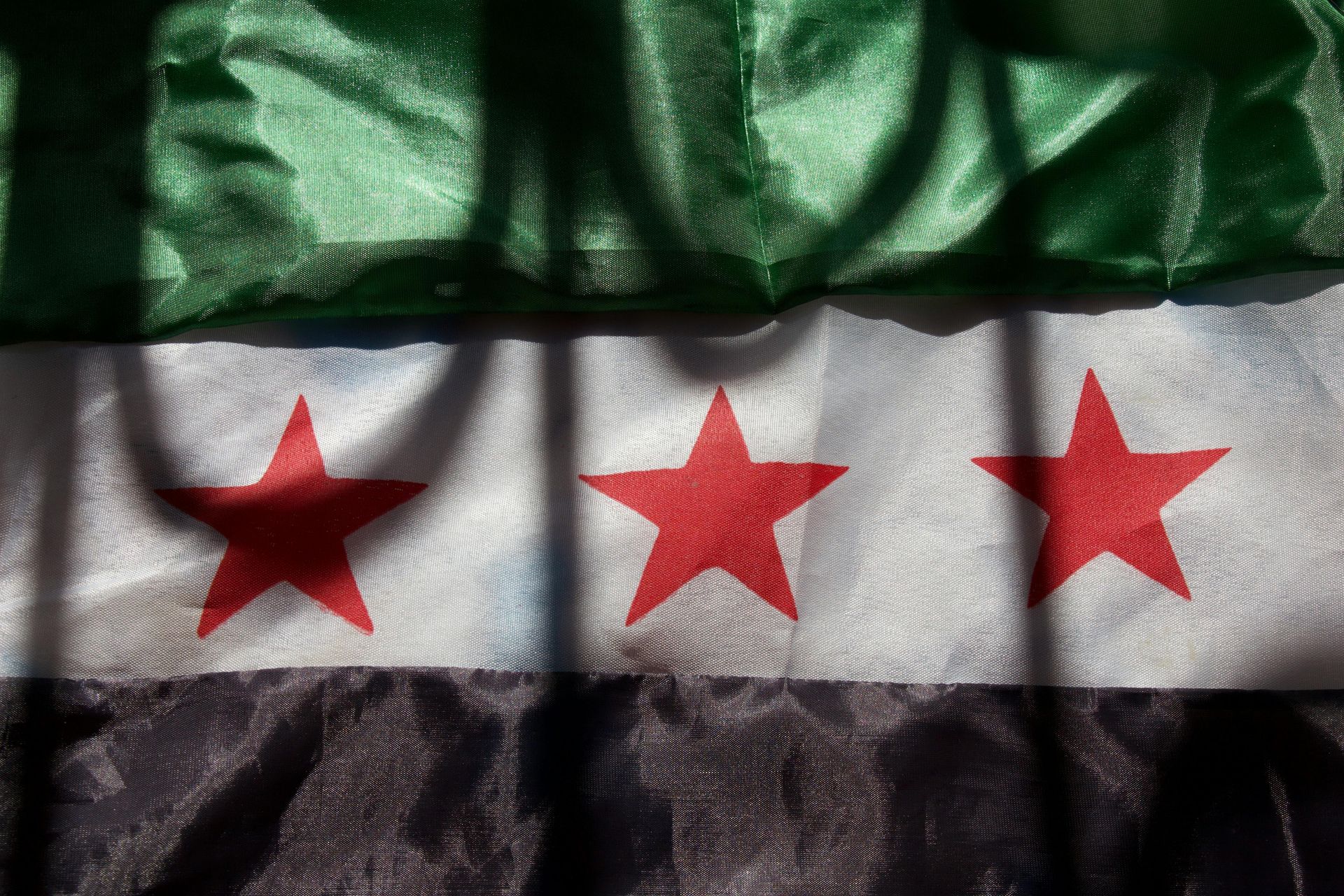
رغم بعض الجوانب المهمة في الإعلان الدستوري المؤقت، مثل تجريم دعوات الانفصال أو الاستقواء بالخارج أو تشكيل فصائل مسلحة أو تأييد جرائم النظام البائد. إلا أن هذا الإعلان الدستوري أبعد ما يكون عن بناء نظام ديموقراطي. حيث يركز الإعلان السلطة التنفيذية بيد الرئيس (غير المسؤول أمام أحد)، كما يمنحه تعيين ثلث أعضاء مجلس الشعب، فيما يمنح صلاحية اختيار الثلثين للجنة يتم تعيينها من قبل الرئيس، ولا يملك المجلس أية صلاحيات رقابية أو حسابية على السلطة التنفيذية، ما يعطي النظام طابعاً استبدادياً. أي أن الرئيس يملك صلاحيات واسعة تشبه تلك التي في الأنظمة السلطوية، وخصوصاً مع محدودية دور البرلمان، والقيود المفروضة على التشريعات وتعيين الأعضاء، كلها تشير إلى ضعف استقلالية البرلمان مقارنة بالديمقراطيات الحقيقية. وفيما تمتلك السلطة القضائية بعض الاستقلالية، لكن هيمنة الرئيس على تعيين القضاة وتشكيل المحاكم وإدارة قضايا الدولة تظل مؤشراً على وجود تأثير قوي للرئيس في السلطة القضائية. بالنظر إلى هذه العناصر، يُمكن وضع هذا الإعلان الدستوري في نقطة أقرب إلى الأنظمة الاستبدادية، وحيث لا يزال هناك بعض التعددية في السلطة في الجوانب الشكلية، مثل وجود برلمان ومحاكم، لكن هذه الهيئات تظل تحت رقابة شديدة من رئيس الجمهورية، مما يشير إلى وجود سلطوية واضحة مع القليل من التوازن الديمقراطي. وطالما أن الشعب لا ينتخب البرلمان، فليس له رقابة على البرلمان أبداً، وطالما أن البرلمان غير منتخب فهذا يبرر أنه لا يراقب الحكومة ولا يحاسبها (مجرد استجواب)، فلا سلطة له على الحكومة. وبالنتيجة لا مكان للشعب في إدارة البلاد في المرحلة الانتقالية. الخطوة القادمة بالغة الأهمية أيضاً، هي سن القوانين بناء على هذه الدستور، وهذا السن قد يخلق إشكاليات على مستوى فهم النص الدستوري وتفسيره، وخصوصاً في قضايا العدالة الانتقالية، وإعادة بناء الاقتصاد، وقانون الأحزاب، والمشاركة السياسية، والمساواة في الفرص (هل تعني المساواة في الفرص عدم دستورية الاستئثار البيروقراطي الجاري حالياً)، وهنا نعود إلى فكرة أن المحكمة الدستورية التي عينها الرئيس هي من يقرر أن القوانين التي يقترحها الرئيس أو البرلمان المعين من قبل الرئيس، دستورية أم لا. أما الدعوة لتشكيل لجنة كتابة دستور دائم، فهذه يجب أن تنبع من مؤتمر وطني أكثر شمولاً واختصاصاً بعد إطلاق العملية السياسية، وليس بناء على تعيين أو تشكيل أو تكليف. هذا الإعلان خطوة باتجاه نظام الفرد القائد (الاستبداد)، وابتعاد كبير عن النهج الديموقراطي المنشود. وبالتالي هو إعلان بأن السلطة لن تكون راعية لإطلاق عملية انتقالية، وبالتالي تصبح المهمة مسؤولية النخب والقوى السياسية أن تبدأ في عملية إنشاء قوى وأحزاب وتكتلات سياسية، تطلق مرحلة نضال سياسي جديدة في مواجهة السلطة، بغية إحداث أسس أكثر صلة بالانتقال الديموقراطي، وبغية الاشتغال على مسار تنشئة سياسية مضادة للتنشئة السلطوية الموروثة أو المستجدة. د. عبد القادر نعناع عميد كلية العلوم السياسية بجامعة الزيتونة الدولية
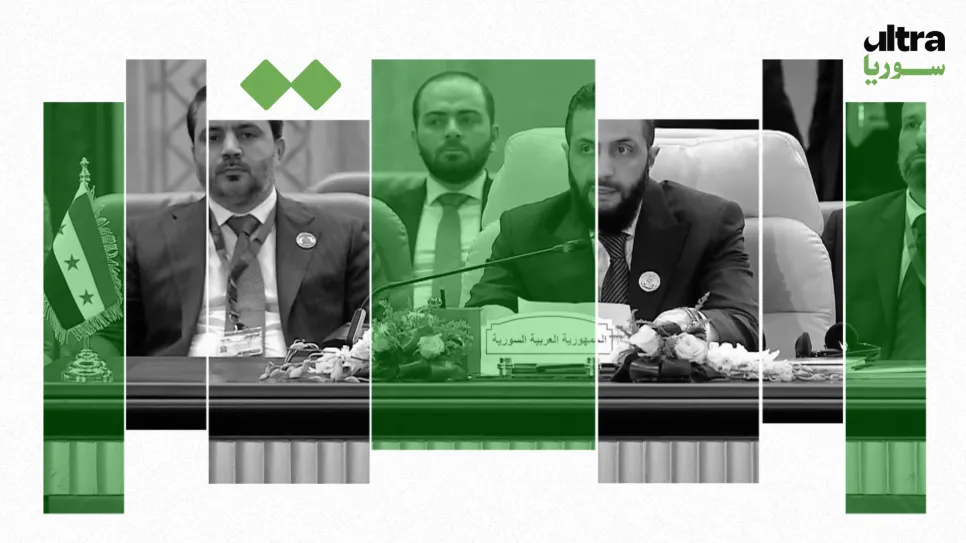
أستاذ العلاقات الدولية، عبد القادر نعناع، يرى أنه من الطبيعي أن تسعى الإدارة السورية الجديدة إلى استعادة مكانتها وفعاليتها في العالم العربي، كما أن ذلك يصبّ في صالح الدول العربية. ويقول في حديثه لـ "الترا سوريا": "رغم أن بعض الفتور كان ظاهرًا في الأسابيع الأولى من استلام الشرع بين سوريا ومصر، إلا أن من مصلحة مصر وكل الدول العربية أن تستعيد سوريا مكانتها من جهة، إلى جانب إخراجها من المحور الإيراني وموازنة النفوذ الإقليمي، وحيث إن القضية الفلسطينية تشهد واحدة من أكثر مراحلها خطورة، فإنها تحتاج إلى توافق عربي على آليات المرحلة". ويضيف: "هذا يستوجب الانفتاح على الحكومة السورية بغض النظر عن أية تحفظات لدى بعض الحكومات العربية، وبالنتيجة هو ما يجب أن يكون فعلًا، أي أن تشارك سوريا الجديدة في المحافل الإقليمية والدولية كافة، حتى ترسّخ شرعية التغيير الحاصل". وتعكس دعوة الإدارة السورية الجديدة للقمة رغبة عربية في استقرار سوريا وخروجها من أزمتها الطويلة، وفق ما يؤكد نعناع، لكنه يشير إلى أن هذه الرغبة تترافق بشيء من الترقب العربي والدولي لسلوكيات الحكومة الجديدة، وإن كانت دول مثل قطر والسعودية وتركيا أكثر انفتاحًا، إلا أن الجميع يراقب المشهد السوري ومآلاته. ويرى نعناع أن هناك توافقًا عربيًا حول ضرورة الاستقرار في سوريا وإنهاء الحرب والأزمات، لكن هذا التوافق قد يتردد في مزيد من الانفتاح على الحكومة الحالية مؤقتًا، بانتظار المزيد من السلوكيات المطمئنة. وتشكل عودة سوريا إلى الحاضنة العربية مكسبًا استراتيجيًا لها على عدة أصعدة، وفق ما يوضح أستاذ العلاقات الدولية، عبد القادر نعناع. فمن الناحية الدبلوماسية: "تسهم المشاركة الفعّالة في المنظمات الإقليمية والدولية بتعزيز سياسات سوريا الخارجية وترسيخ شرعية المرحلة الانتقالية، إضافة إلى أن قبول سوريا في محيطها العربي يعزز من مكانتها على الساحة الدولية". واقتصاديًا يمكن أن تحقق فوائد ملموسة، "مثل تعزيز التعاون التجاري، وجذب الاستثمارات المشتركة، والمساهمة في مرحلة إعادة الإعمار والعدالة الانتقالية". ويعدّ بناء كتلة إقليمية ودولية داعمة أمرًا ضروريًا لمواجهة التهديدات الأمنية الإيرانية والميليشياوية والإسرائيلية التي تتعرض لها سوريا، بحسب نعناع، خاصة وأن هذه التهديدات تؤثر في مصالح العديد من الدول العربية. بموازاة ذلك، تمثّل عودة سوريا إلى المنظومة العربية تحوّلًا استراتيجيًا يعزّز من الأمن القومي العربي. ويلفت عبد القادر نعناع إلى أنه "في السنوات الماضية، كانت سوريا منطلقًا للتهديدات الأمنية عبر الميليشيات الإيرانية وتهريب المخدرات ونشاط الجماعات الإرهابية العابرة للحدود، لذا شهدنا انفتاحًا واضحًا من دول مثل السعودية والأردن ولبنان وقطر، بهدف القضاء على هذه المخاطر". ويؤكد أن عودة سوريا تُعدّ خطوة لتوسيع آفاق التعاون العربي، سواء عبر تعزيز التنسيق الأمني والاستخباراتي، أو من خلال دعم الاستقرار السياسي والاقتصادي في المنطقة، ما يسهم في موازنة القوى الإقليمية ضد التأثيرات الخارجية السلبية. يحذر نعناع من أن الطرفين الإيراني والإسرائيلي، يجتمعان اليوم على تغذية الفوضى في المشرق العربي عمومًا وسوريا خصوصًا، في محاولة من كل منهما لتوسيع مناطق نفوذه. ويضيف: "تحاول طهران إحياء مشروعها الذي تعرّض لانكسار بعد أحداث 7 من أكتوبر واغتيال الأمين العام السابق لحزب الله، حسن نصر الله، وهروب بشار الأسد، عبر وكلاء جدد، لكن بذات الآليات السابقة، وهي آليات زرع الفوضى". مداخلة حول: "عودة سوريا إلى الجامعة العربية.. مكاسب استراتيجية مهدَّدة"، ألترا سوريا، 2025/3/11، مع Ninar Khalifa على الرابط التالي: https://ultrasyria.ultrasawt.com/%D8%B9%D9%88%D8%AF%D8%A9-%D8%B3%D9%88%D8%B1%D9%8A%D8%A7-%D8%A5%D9%84%D9%89-%D8%A7%D9%84%D8%AC%D8%A7%D9%85%D8%B9%D8%A9-%D8%A7%D9%84%D8%B9%D8%B1%D8%A8%D9%8A%D8%A9-%D9%85%D9%83%D8%A7%D8%B3%D8%A8-%D8%A7%D8%B3%D8%AA%D8%B1%D8%A7%D8%AA%D9%8A%D8%AC%D9%8A%D8%A9-%D9%85%D9%87%D8%AF%D9%8E%D9%91%D8%AF%D8%A9/%D9%86%D9%8A%D9%86%D8%A7%D8%B1-%D8%AE%D9%84%D9%8A%D9%81%D8%A9/%D8%B3%D9%8A%D8%A7%D8%B3%D8%A9
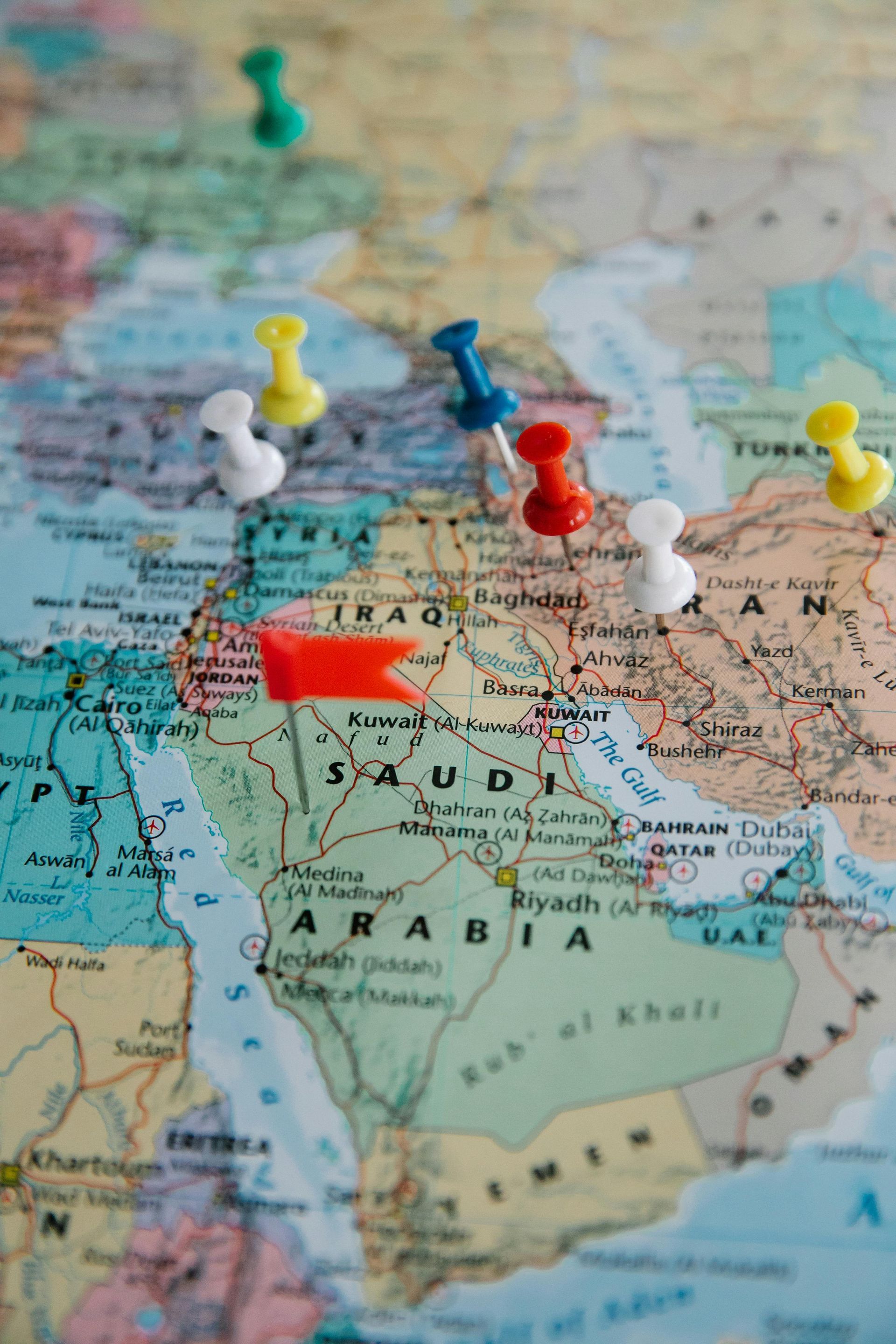
لم تكن تصريحات نتنياهو الأخيرة خارج سياق ما يحصل في الشرق الأوسط منذ 7 تشرين الأول/أكتوبر 2023، أو في سياق انفجار النزاعات المسلحة في المنطقة. لكن اغتيال قيادات حماس وحزب الله، ثم سقوط نظام الأسد، كان بمثابة سقوط الشرق الأوسط الإيراني، وبالتالي هذا أحدث فراغاً استراتيجياً على مستوى المنطقة، تسارع إسرائيل لتعبئته منذ 8 كانون الأول/ديسمبر، مانعة ظهور قوى إقليمية منافسة جديدة، وهذا ما أسميناه حينها ببداية تبلور شرق أوسط إسرائيلي (تهيمن عليه إسرائيل). يتفق هذا الشكل من الشرق الأوسط، مع الطبيعة العدوانية المتطرفة لنتنياهو ومشروعه التوسعي، ومع وصول أقوى داعميه (ترامب) إلى البيت الأبيض، وفراغٍ متّسع، وضعف دول الجوار، وغياب القوى الموازنة، وانهيار الدولتين السورية واللبنانية. جميع هذه المتغيرات، عززت المطامع الإسرائيلية المستمرة بالتوسع من جديد، وخصوصاً أن إسرائيل لا تؤمن بالحدود الثابتة، وهذا جزء أصيل في مشروعها منذ ما قبل عام 1948. أي إن هناك تهديدات جدية بتوسع المشروع الإسرائيلي أكثر فأكثر في سورية، بما يتجاوز المنطقة العازلة، وربما تكون تهديدات نتنياهو، مؤشراً على مرحلة قادمة لا تمتلك فيها سورية القدرة على المواجهة إطلاقاً (أسوء من مرحلة النكسة عام 1967، حين لم تمتلك سورية مقومات المواجهة)، ونظن أن نتنياهو جاد في استهداف القوات السورية التي قد تشكل عائقاً أمام مطامعه. وحيث أن نتنياهو اعتبر أن القوات السورية هي (هيئة تحرير الشام)، فهو بشكل أو بآخر لم يعترف بعد بالحكومة السورية الجديدة، وما يزال ينظر إلى المجريات باعتبار أن جماعة إسلامية سيطرت على الحكم، محاولاً خلق متغيرات أمنية جديدة عبر استغلال ما تراه إسرائيل "فوضى" سورية. وهناك مساران محتملان للمشهد السوري، إما رغبة نتنياهو الشخصية في توسيع حدود إسرائيل، بشكل حزام أمني أو بشكل دائم، أو أن ما يجري هو نوع من ممارسة الضغوط القصوى بهدف دفع دمشق لمفاوضات سلام مباشرة. بالنتيجة، هذا يتطلب من الحكومة السورية جملة خطوات، تبدأ دبلوماسياً في العواصم الإقليمية والدولية، وتمر عسكرياً، عبر استكمال تحويل الفصائل إلى جيش سوري وطني، وربما عبر اتفاقيات دفاعية وتسليحية وتدريبية هي بأمس الحاجة لها، في ظل توحش إسرائيلي شرق أوسطي، وتنتهي سياسياً على المستوى الداخلي من خلال حكومة تتشارك فيها كل القوى السورية مسؤولية الدفاع عن الدولة. وربما قد يكون الوقت مناسباً لإطلاق مسار مفاوضات مباشرة أو غير مباشرة مع تل أبيب. د. عبد القادر نعناع عميد كلية العلوم السياسية – جامعة الزيتونة الدولية

يشهد الشرق الأوسط مرحلة جديدة من اختلال توازن القوى الإقليمي، الذي تتسابق فيه كل من تركيا وإسرائيل لتصحيح هذا الخلل بما يعزز مكانتهما الإقليمية. ربما تكون إسرائيل الأكثر فعالية في ذلك، حيث أنها هي المتسبب الأكبر بهذا الخلل منذ 7 تشرين الأول/أكتوبر 2023. وخلال عام واحد، استطاعت كسر المحور الإيراني في اثنتين من محطات ارتكازه شرق أوسطياً (لبنان وسورية)، وبالتالي أحدثت فراغاً استراتيجياً غير معتاد، يحتاج إلى كثير جهد لملئه. عموماً، يشهد الشرق الأوسط ما نسميه (التغييرات العَقْدِية: أي أن هناك تغييرات كبيرة كل عقد من الزمن)، وهذه التغييرات تكون بناء على ما سبق وتأسيساً لما سيلي. لكن التغييرات هذه المرة كانت أكبر بكثير، وهي شبيهة بوقع احتلال العراق. وربما تكون أكبر من ذلك، فمنذ احتلال العراق عام 2003، اشتغلت إيران على بناء شرق أوسط إيراني سيمتد حتى صيف 2024، كان لإيران فيه النفوذ الأكبر، والحراك العسكري الأكثر انتشاراً، والمكاسب الأكثر استراتيجية. وبالتالي، فإن ما حصل منذ اغتيال نصر الله في أيلول/سبتمبر 2024 وهروب الأسد في كانون الأول/ديسمبر، هو انهيار الشرق الأوسط الإيراني، وبداية شرق أوسط إسرائيلي سيتم تأسيسه خلال سنين قادمة. ولكل شرق أوسط لزومه الخاص بقيامه، ومن لزومه تصفية كل ما يتعلق بالمشروع الإيراني، وهنا لا نعني تصفية النظام الإيراني، بل إخراجه من معادلات القوة شرق الأوسط، عبر إخراجه من المرتكزين الآخرين: العراق واليمن أولاً ، وإعادة إيران إلى ما دون مرحلة توازن الرعب (التوازن النووي الوشيك) لضمان التفوق النووي الإسرائيلي، وإيجاد وكلاء جدد للشرق الأوسط الإسرائيلي، ومن ذلك كان تصفية كل عناصر القوة العسكرية لسورية ما بعد الأسد (تدمير أكثر من 80% من قوتها العسكرية)، وهو ما قد يحتاج إلى سنوات من الاستهداف المستمر (ضربات جوية، اغتيالات، تخريب، دعم قوى محلية، تحشيد دولي)، قبل الوصول إلى مرحلة "السلام الإسرائيلي Pax Israeliana"، ونشك في إمكانية الوصول إلى هذا النمط من السلام (حيث تعيش إسرائيل آمنة تماماً على ذاتها ومصالحها)، حيث أن إسرائيل تسعى لفرض هذا السلام دون أية تسويات فعلية لتعقيدات الشرق الأوسط التي تسببت بها. وفيما يستند نتنياهو إلى مشروع شخصي بالغ التطرف منذ 2023، فإنه الآن يستند إلى ترامب صاحب المشاريع المتطرفة الأخرى في المنطقة (صفقة القرن، اتفاقات أبراهام، نقل السفارة، الاعتراف باحتلال الجولان، حملة الضغط الأقصى)، وبالتالي يشكل ترامب عامل تحفيز أكبر لتعزيز الشرق الأوسط الإسرائيلي، سواءً في الطرح المتطرف المتعلق بتهجير سكان غزة، أو بدء عمليات عسكرية غير محدودة في الضفة الغربية، أو فرض توجهات شرق أوسطية تتفق مع بناء أمن إسرائيلي جديد. وربما يكون من سمات هذا الشرق الأوسط، طي صفحة استخدام القوى العسكرية دون الدولة (الميليشيات والجماعات المسلحة الأخرى)، والعودة إلى العمل ما بين الحكومي في المنطقة، لكن ذلك لا ينفي أن لإسرائيل مطامع ما تزال حاضرة في تفتيت المنطقة ما استطاعت إلى ذلك، وخصوصاً مع سلوكها العلني تجاه سورية ولبنان. ولا يعني أن إسرائيل ستشتغل على تحقيق شرق أوسطها كما فعلت إيران (عبر ميليشياتها)، بل هي أكثر حاجة إلى وجود كلاء شرق أوسطيين يتولون هذه المهمة، ومع صعوبة تشكيل ميليشيات على النمط الإيراني، فإن أمام إسرائيل نمطين آخرين: تعزيز النزعات الانفصالية كما تفعل مع قسد في شرق سورية، أو الاعتماد على حكومات شرق أوسطية مقابل منافع وضمانات أمنية واقتصادية، ومن غير الواضح بعد أي النمطين أكثر إمكانية (وإن كنا نرجح النمط الثاني أكثر). ورغم ما يظهر من رفض عربي معلن حول مشروع تهجير سكان غزة، لكن لا حدود لتطرف محور نتنياهو-ترامب، وبالتالي تبقى قدرة الدول العربية على التأثير الحقيقي محدودة، وإن كان طرح ترامب بجعل غزة منطقة استثمار سياحي وتهجير سكانها داخلياً أو خارجياً قد يكون نوعاً من بوالين الاختبار لقياس مدى قدرة ترامب على الضغط على شركائه في الشرق الأوسط، وخصوصاً مع رفض فلسطيني-عربي لأية عمليات تهجير من غزة، تبقى قدرة الدول العربية على فرض موقف موحد فعّال موضع تساؤل، خاصة في ظل الانقسامات الداخلية والتباين في المصالح بين العواصم العربية، فيما قد تحمل زيارة ترامب المرتقبة للسعودية تبياناً للتوجهات القادمة. د. عبد القادر نعناع عميد كلية العلوم السياسية بجامعة الزيتونة الدولية



